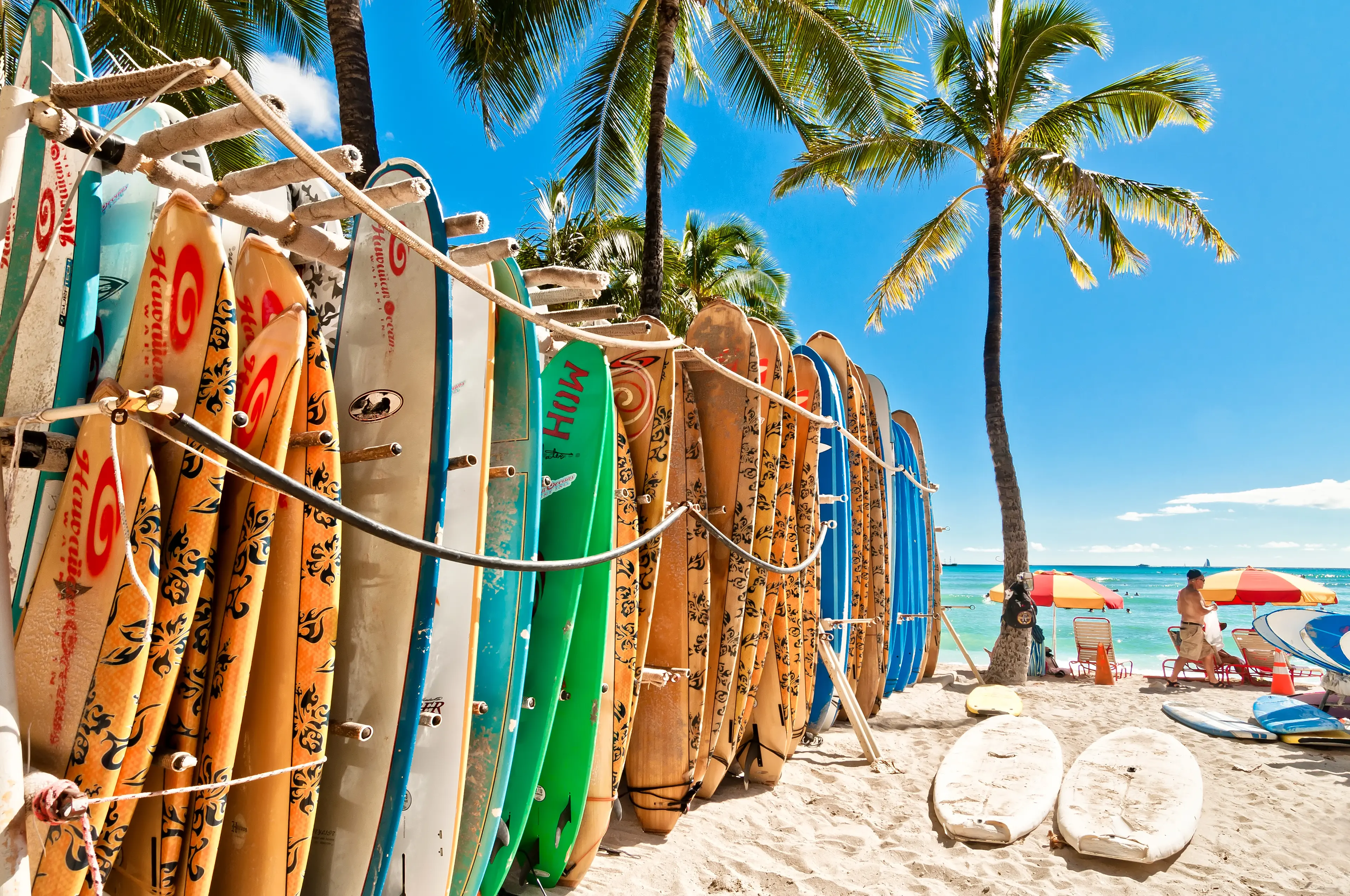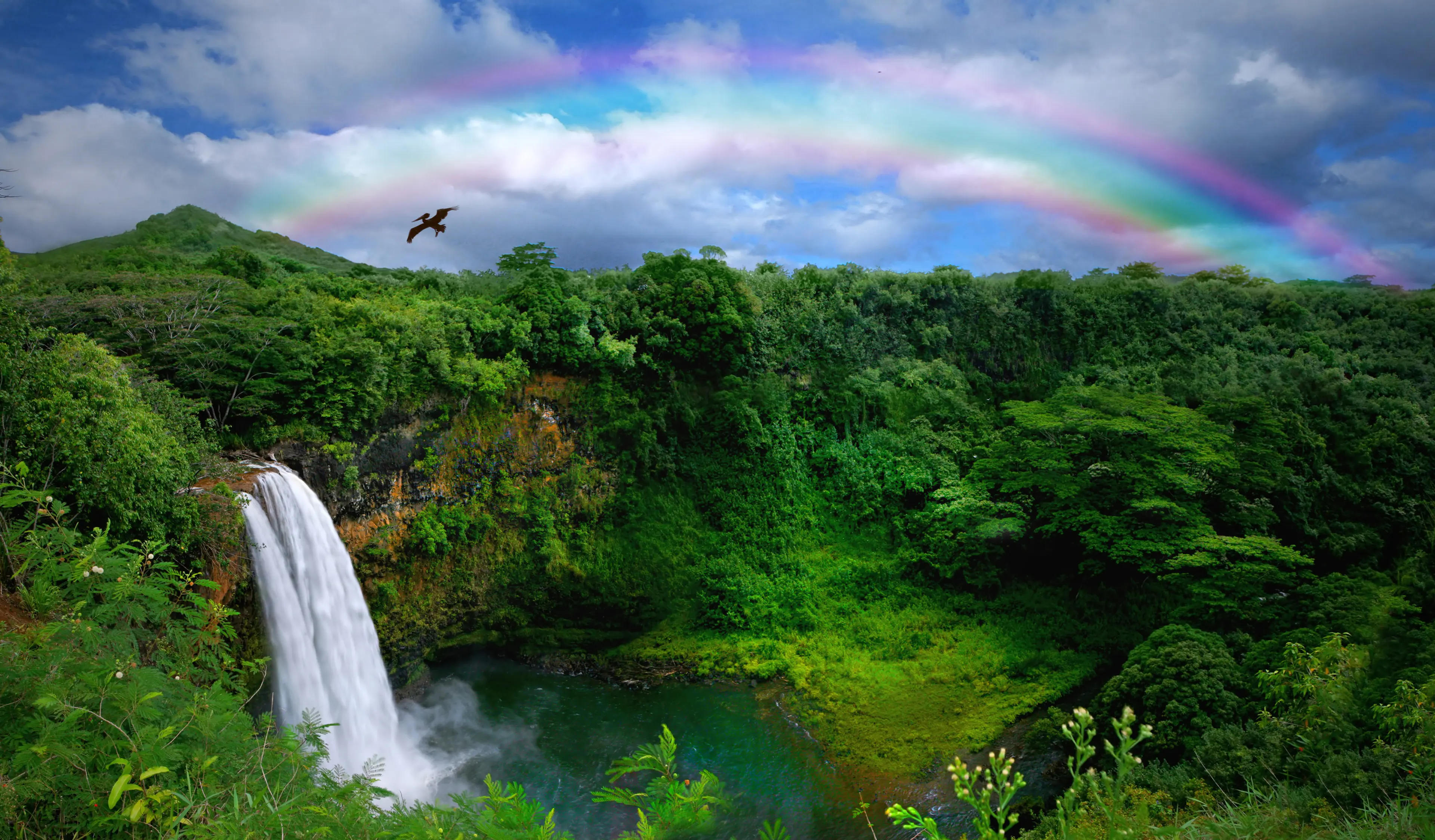2-Day Ultimate Hawaii Outdoor Adventure with Friends
Hawaii
2 days
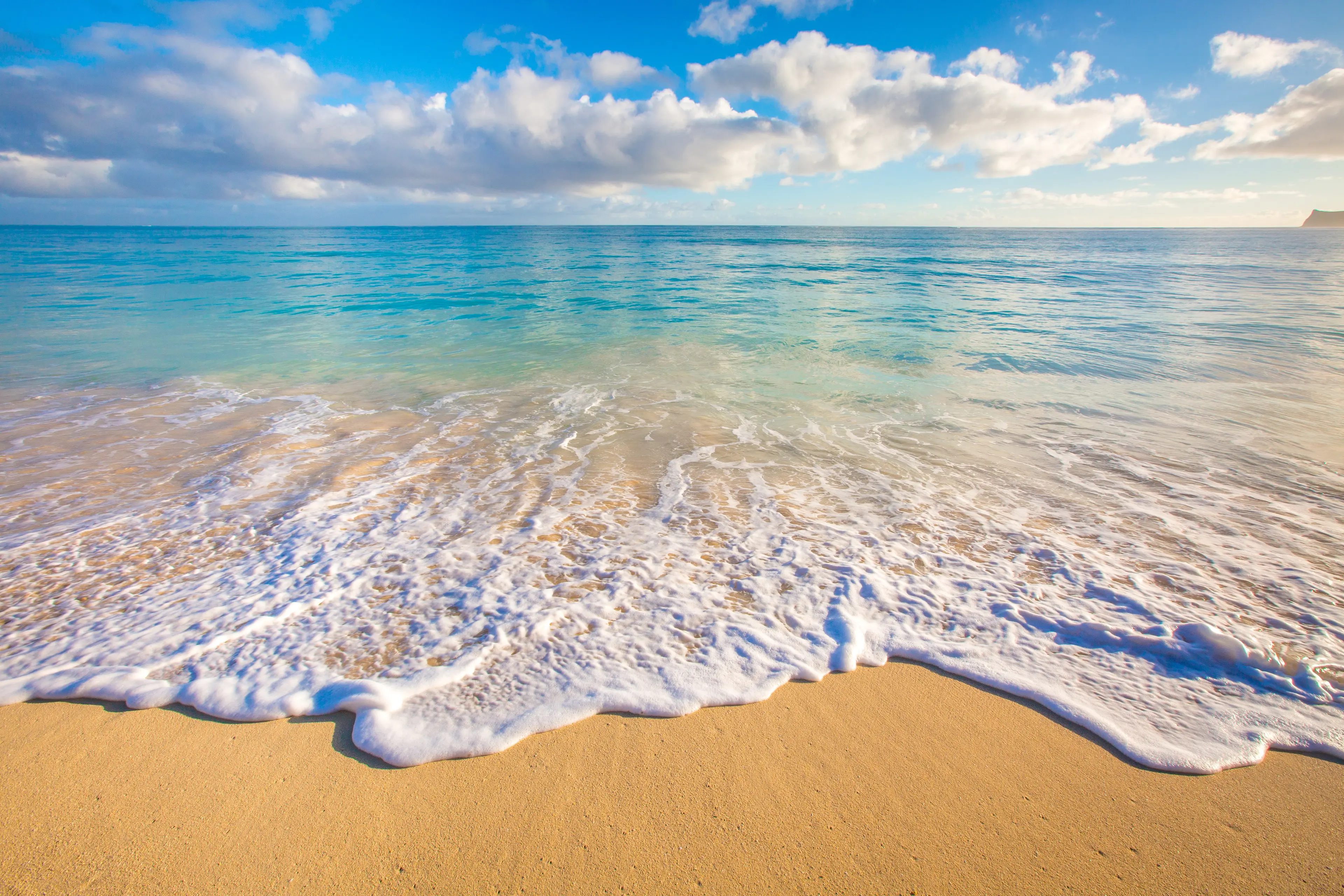
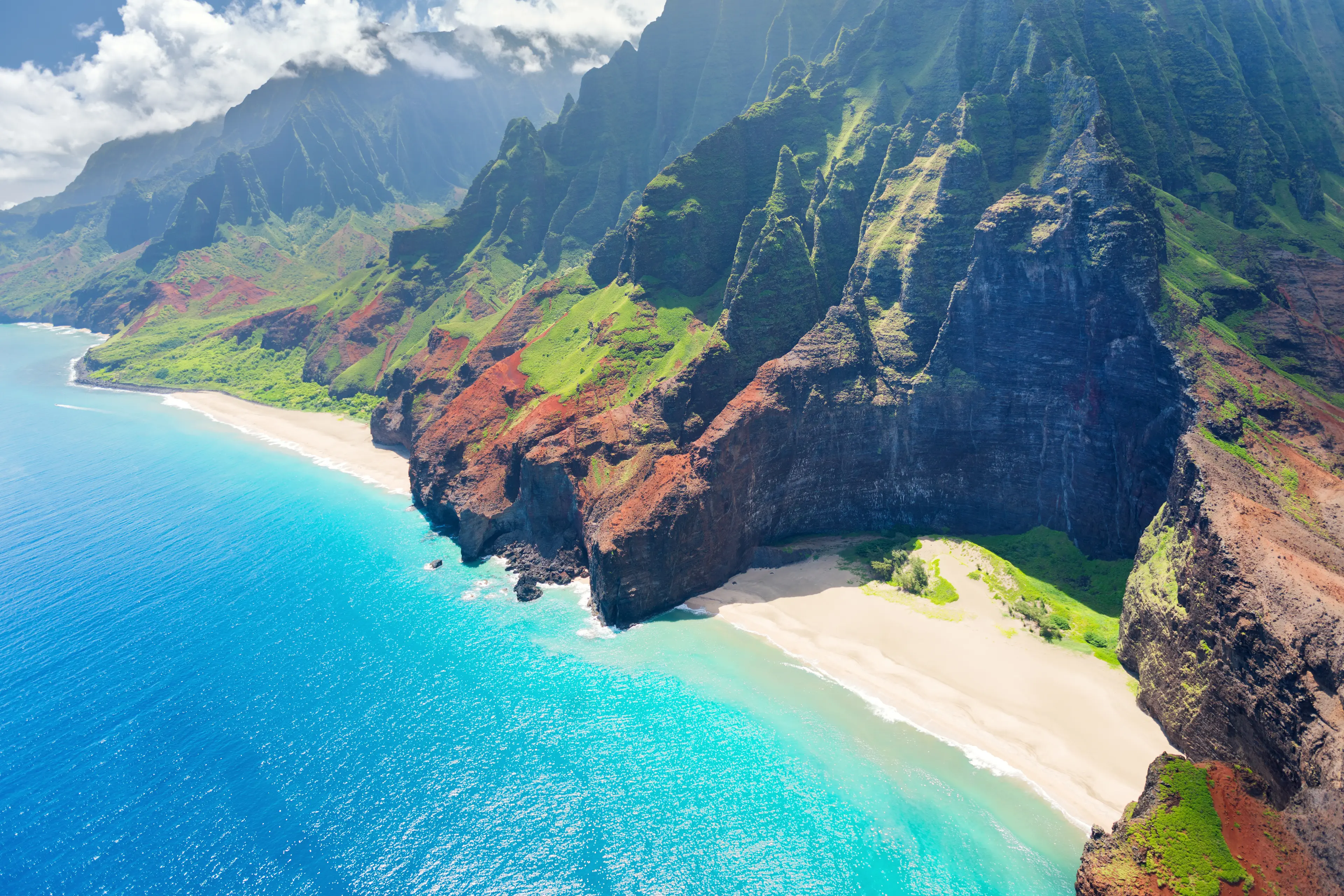
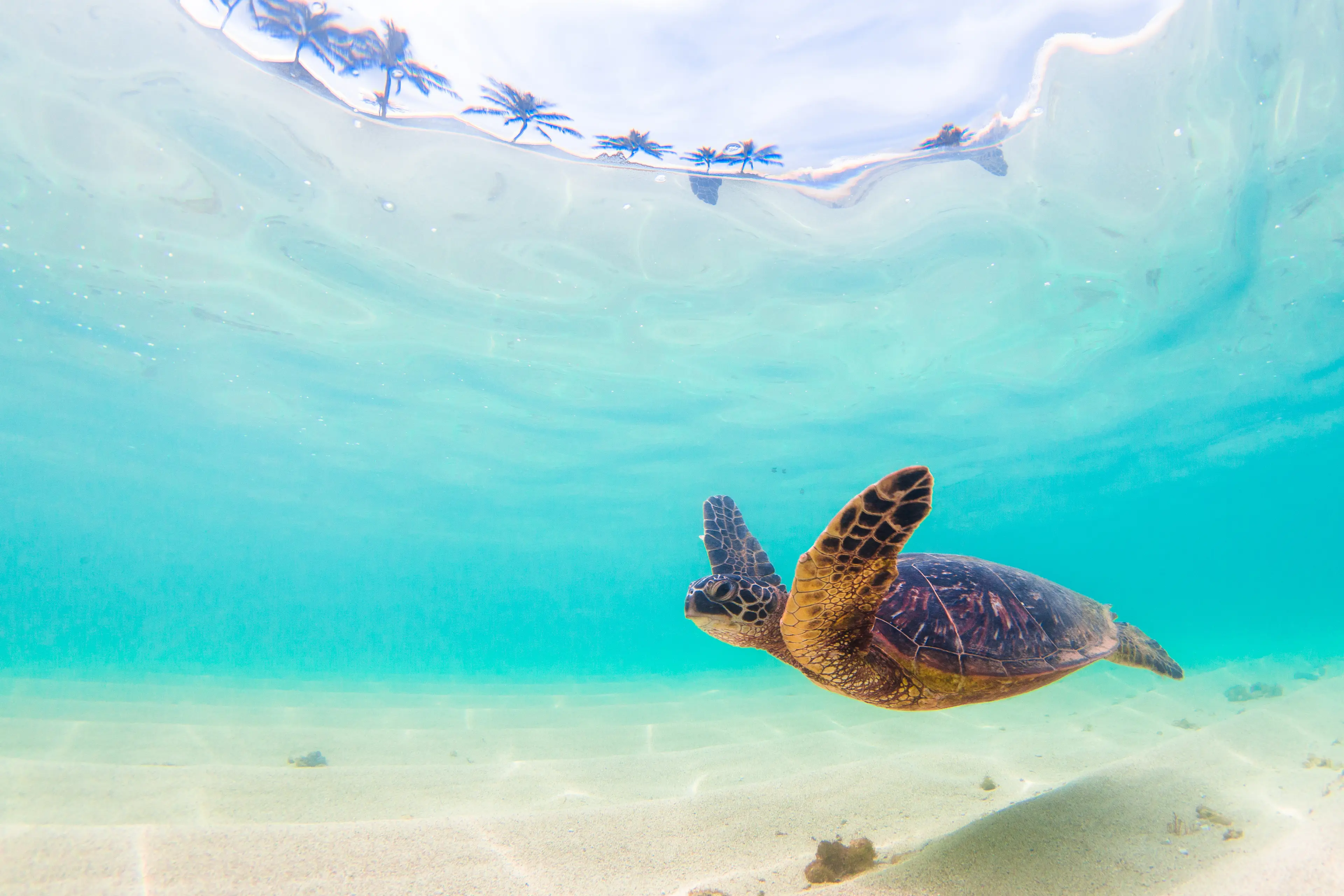

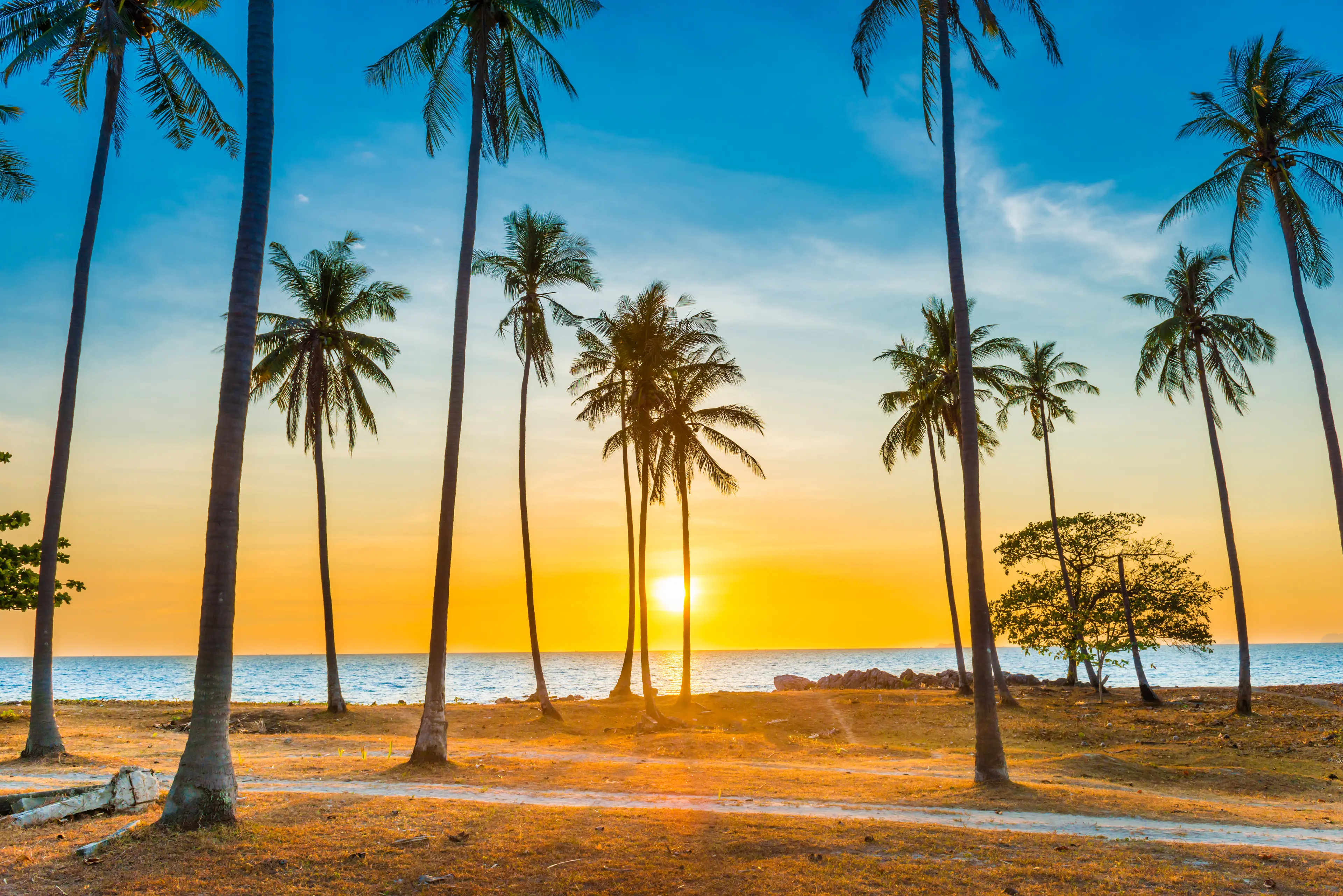
About Hawaii
Experience the tropical paradise of Hawaii, a unique blend of lush landscapes, vibrant culture, and stunning beaches. Discover the active volcanoes at Hawaii Volcanoes National Park on the Big Island, or immerse yourself in the rich Polynesian culture at Oahu's Polynesian Cultural Center. Enjoy the world-renowned surf on the North Shore, or relax on the pristine sands of Maui's Kaanapali Beach. Explore the stunning Na Pali Coast on Kauai by boat or helicopter, and don't miss the historic Pearl Harbor. Indulge in the local cuisine, featuring fresh seafood, tropical fruits, and the iconic Hawaiian Luau. Whether you're seeking adventure, relaxation, or cultural immersion, Hawaii offers an unforgettable vacation experience.
2-Day Itinerary
Day 2
Adventure in Waimea Valley and North Shore
Morning
Start your second day with a visit to the lush Waimea Valley. Hike through the botanical gardens to the waterfall for a refreshing swim.
Lunch
Have a picnic lunch in the gardens of Waimea Valley. Enjoy the tranquility and beauty of the surroundings.
Afternoon
Spend the afternoon surfing at the famous North Shore. Whether you're a beginner or an expert, the North Shore has waves for everyone.
Dinner
Enjoy a dinner at a local food truck. Hawaii is known for its food truck scene, offering everything from shrimp scampi to shave ice.
Evening
End your day with a beach bonfire. Share stories, roast marshmallows, and enjoy the sound of the waves under the starlit sky.
Attractions in Itinerary (5)
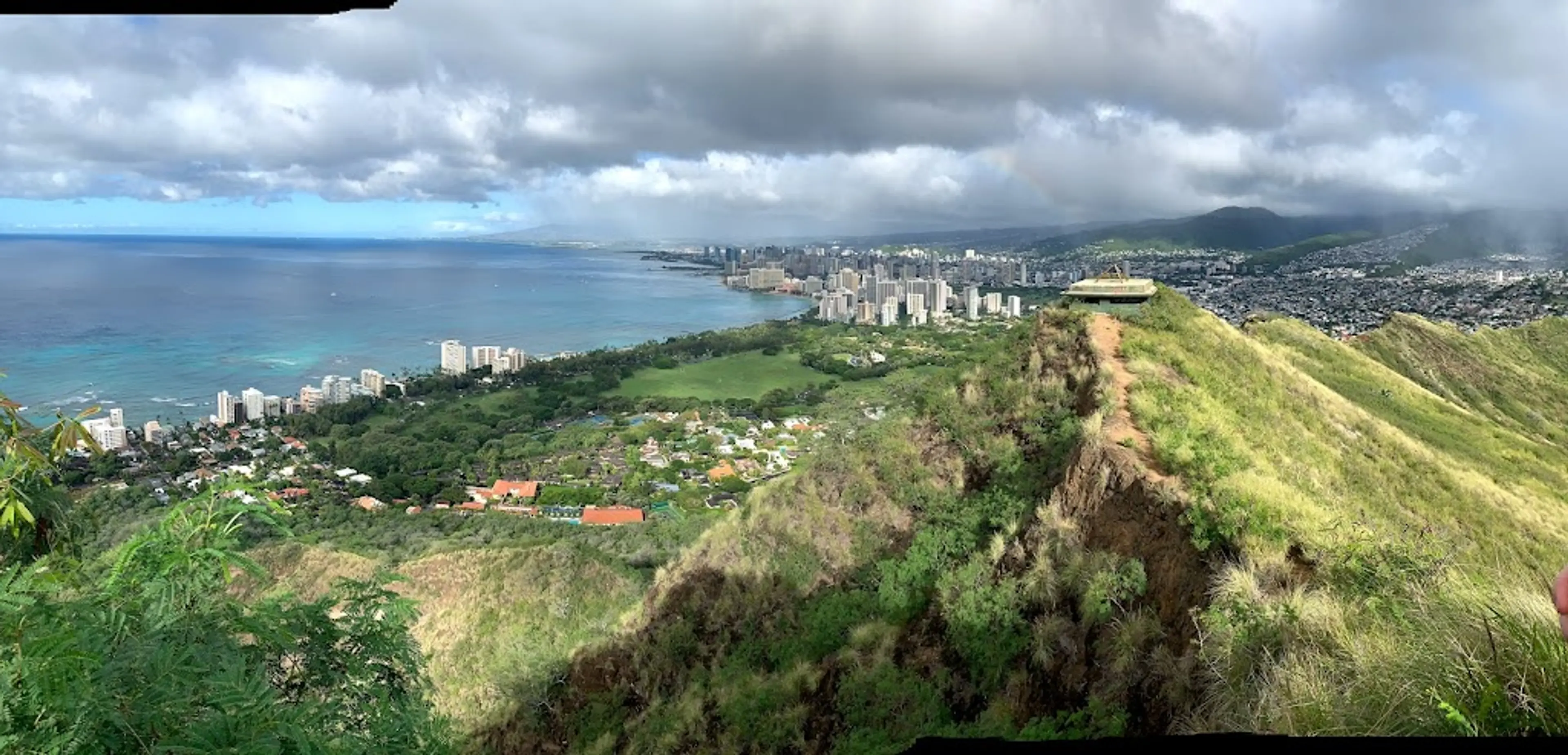
1Diamond Head Crater
A famous volcanic cone, it's known for its historic hiking trail, stunning coastal views, and military history.
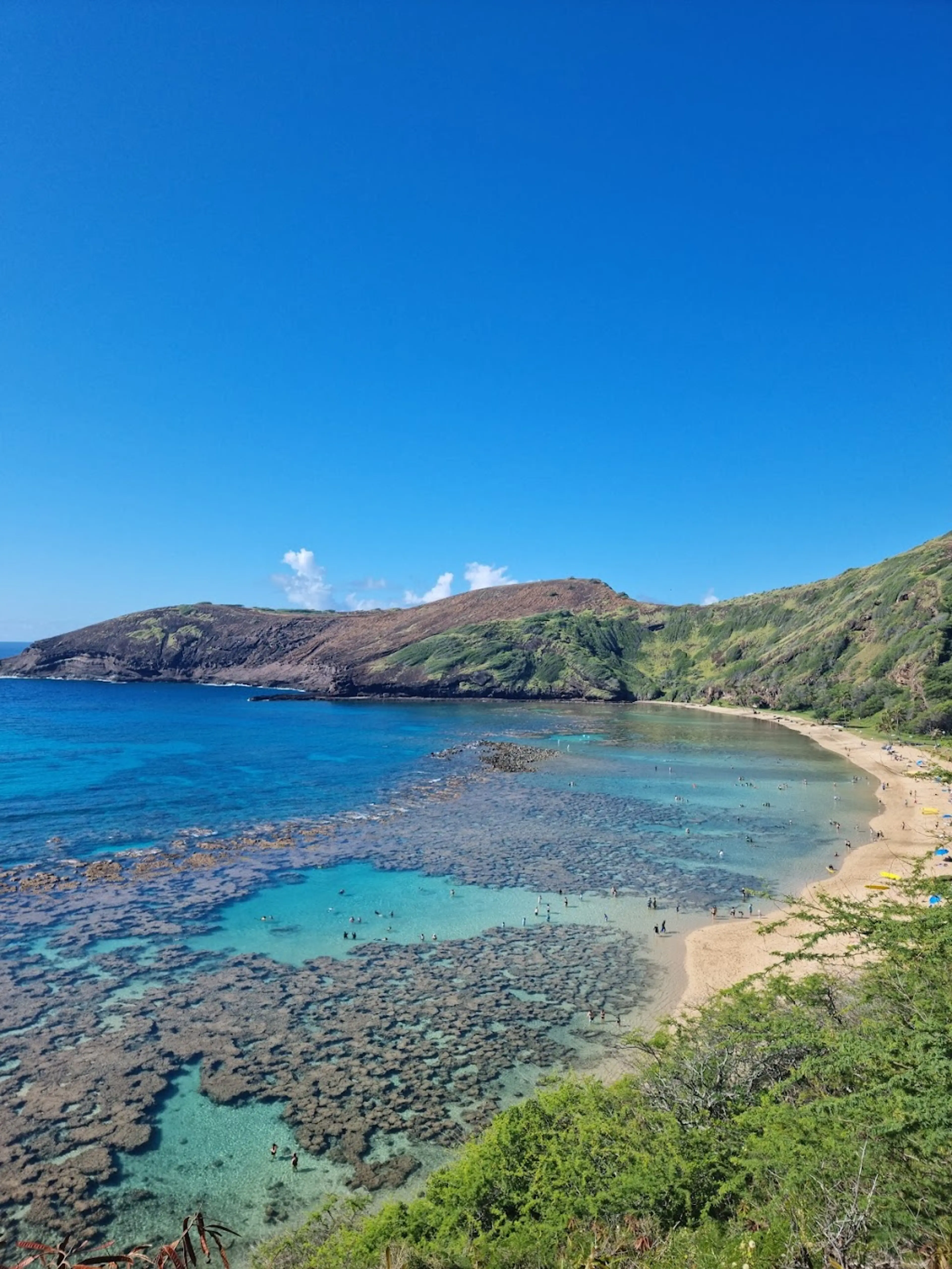
2Hanauma Bay Nature Preserve
A marine embayment formed within a volcanic cone, known for snorkeling and marine biodiversity.
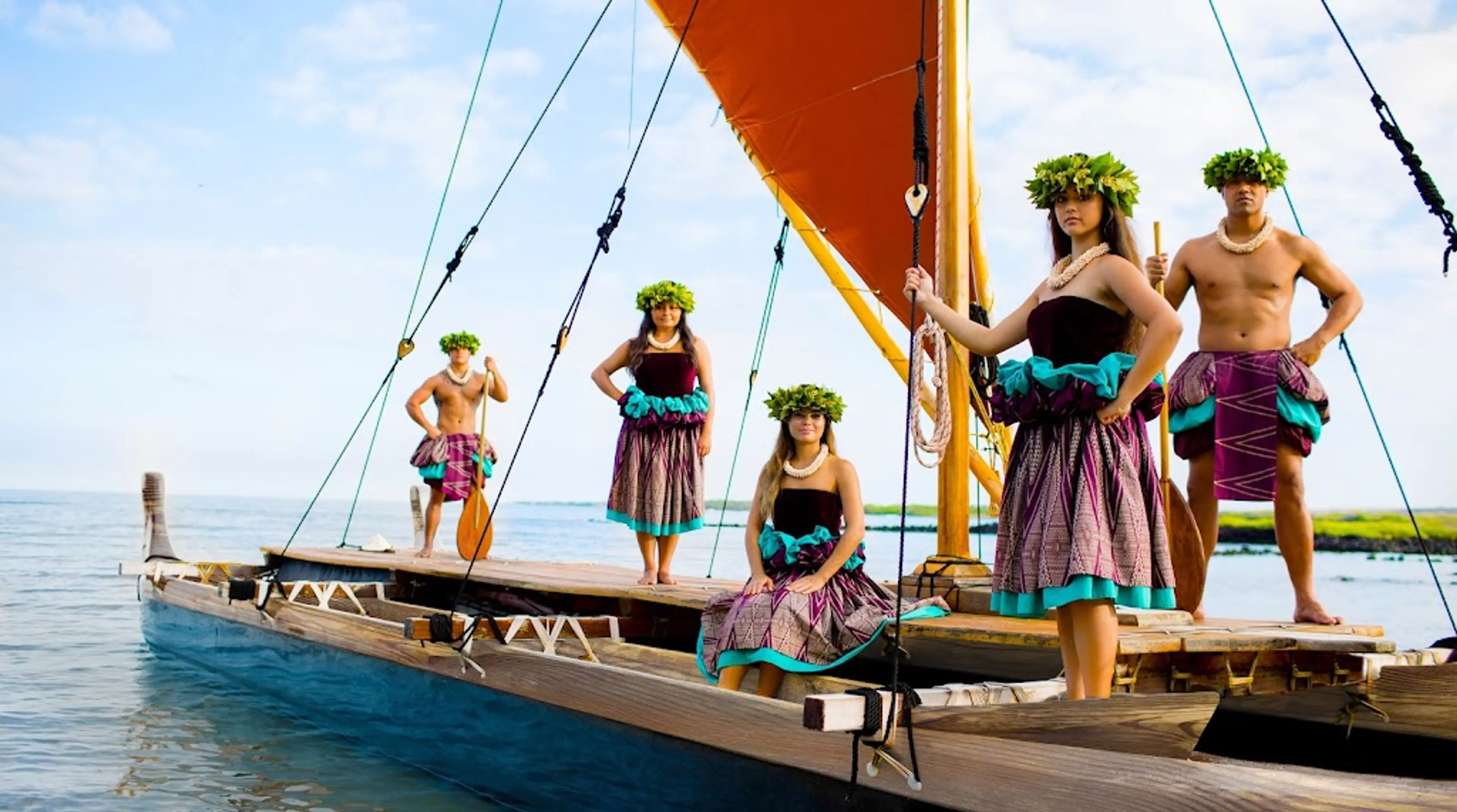
3Hawaiian luau
A traditional Hawaiian party or feast that usually features food, such as poi, kalua pig, poke, lomi salmon, opihi, haupia, and beer; and entertainment, such as Hawaiian music and hula.
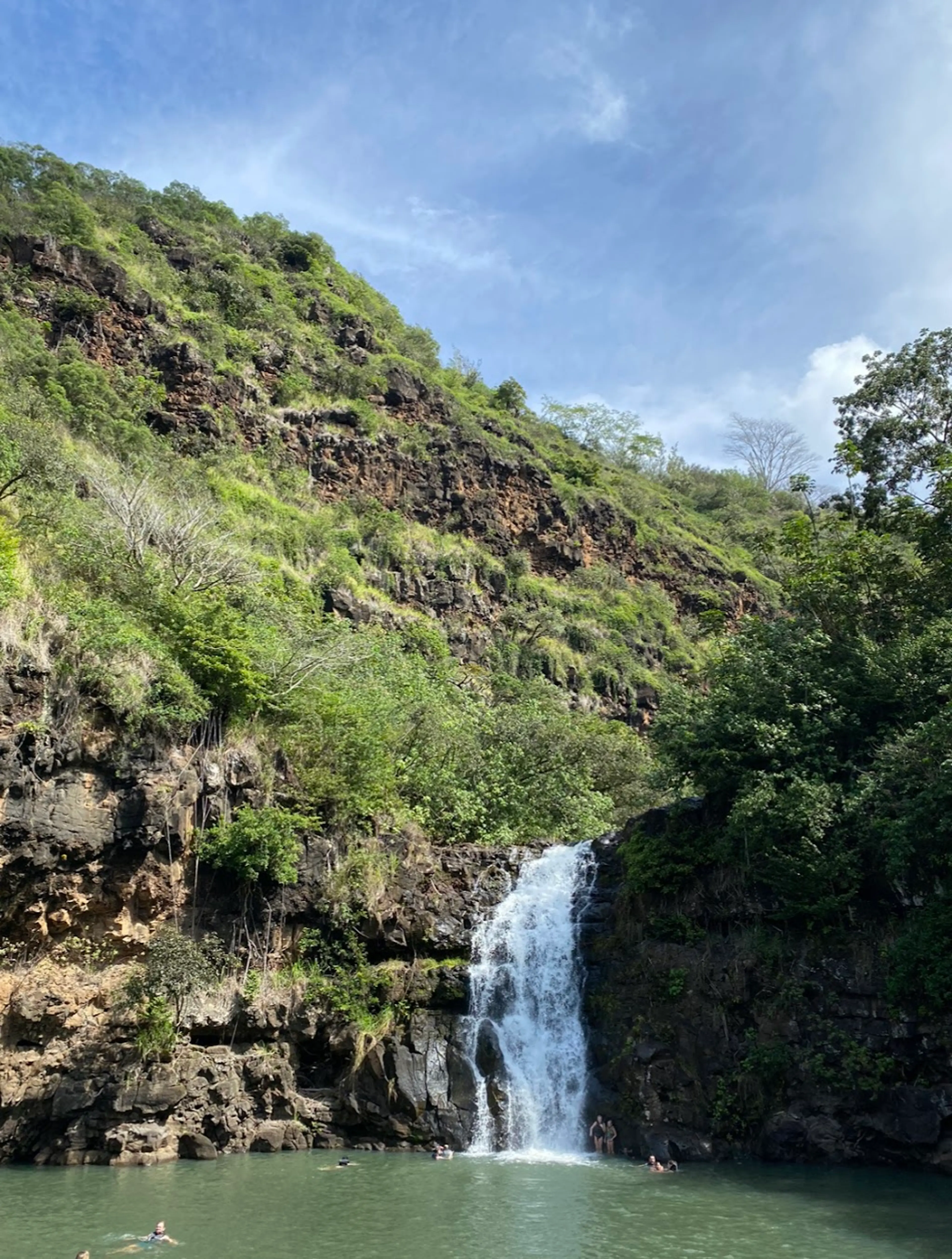
4Waimea Valley
A rich and culturally significant valley offering visitors a chance to experience Hawaiian history, botanic gardens, and a beautiful waterfall.

5North Shore
Known for its massive waves, attracting surfers from all around the globe. It is home to the infamous Banzai Pipeline, Sunset Beach, and Waimea Bay.
Local Food and Drinks (12)
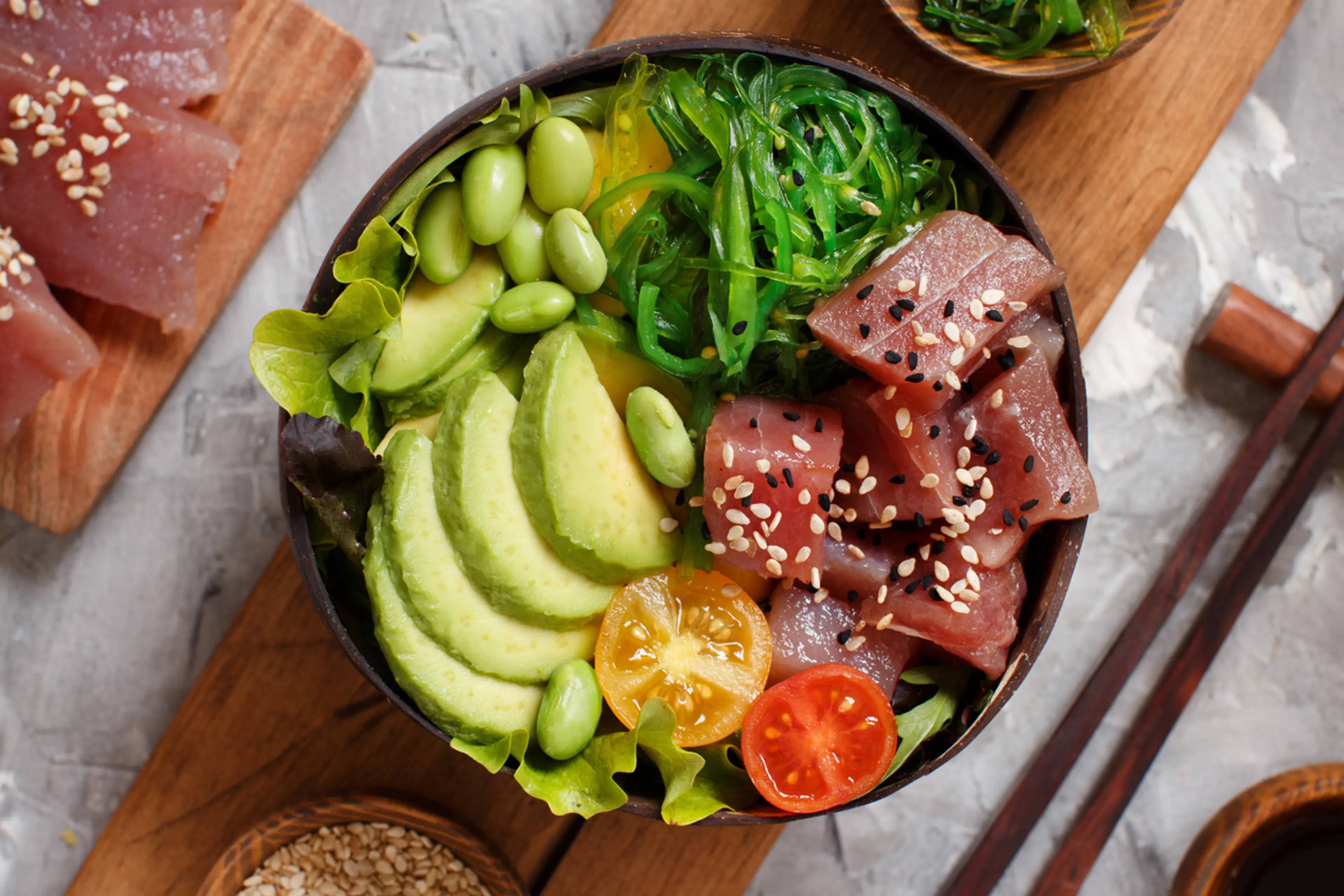
Poke
A traditional Hawaiian dish made from raw, marinated fish (usually tuna) cut into small chunks and mixed with ingredients like soy sauce, green onions, and sesame oil. It's a staple in Hawaii and a must-try for seafood lovers.
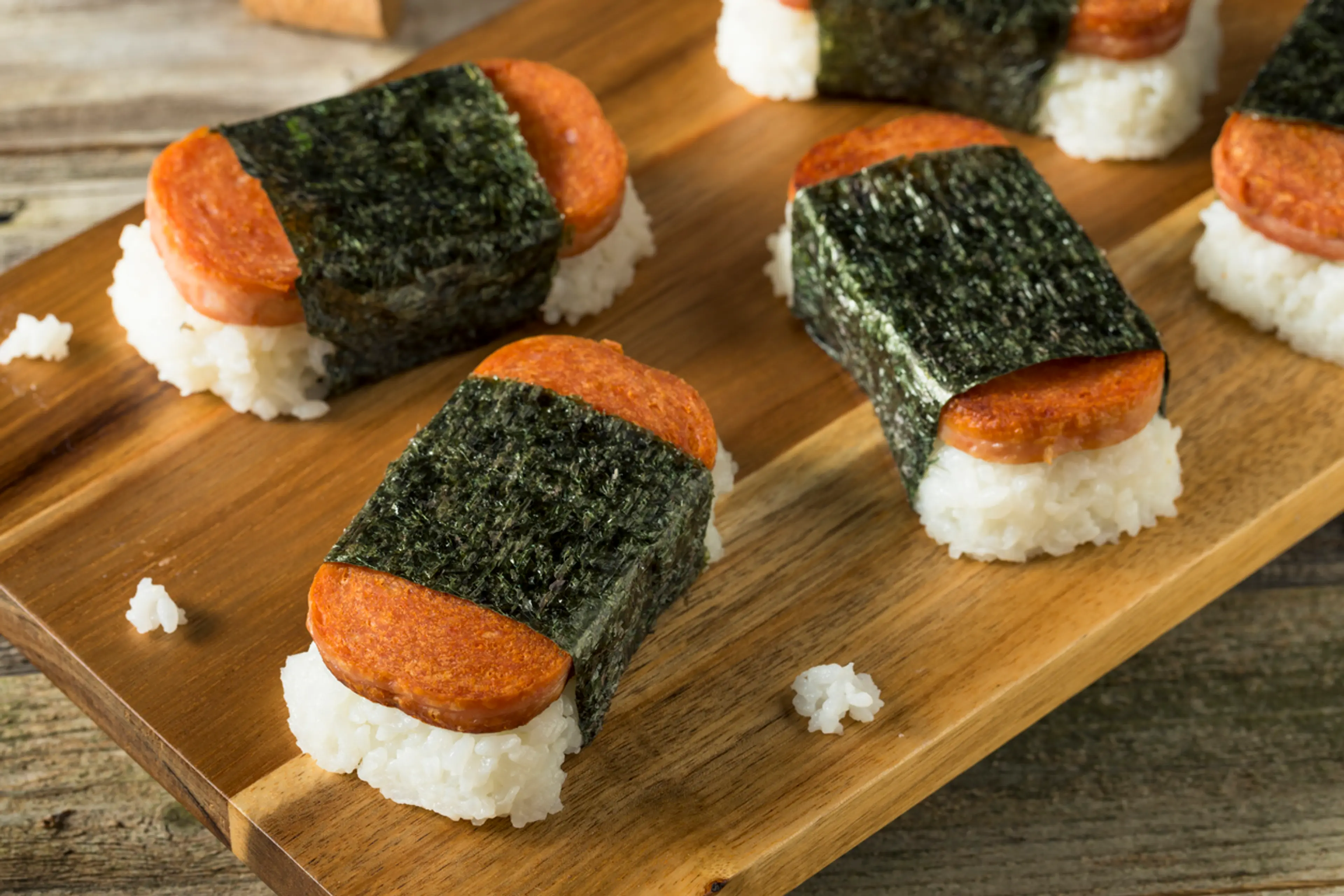
Spam Musubi
A popular snack and lunch food in Hawaii, Spam Musubi is a sushi-style creation made with grilled Spam on a block of rice, wrapped together with nori (dried seaweed). It's a fusion of Hawaiian and Japanese cuisines.

Kalua Pig
A traditional Hawaiian dish, Kalua Pig is a slow-cooked, tender, smoky flavored pork. It's usually cooked in an underground oven, known as an imu, and is a common dish at luaus.
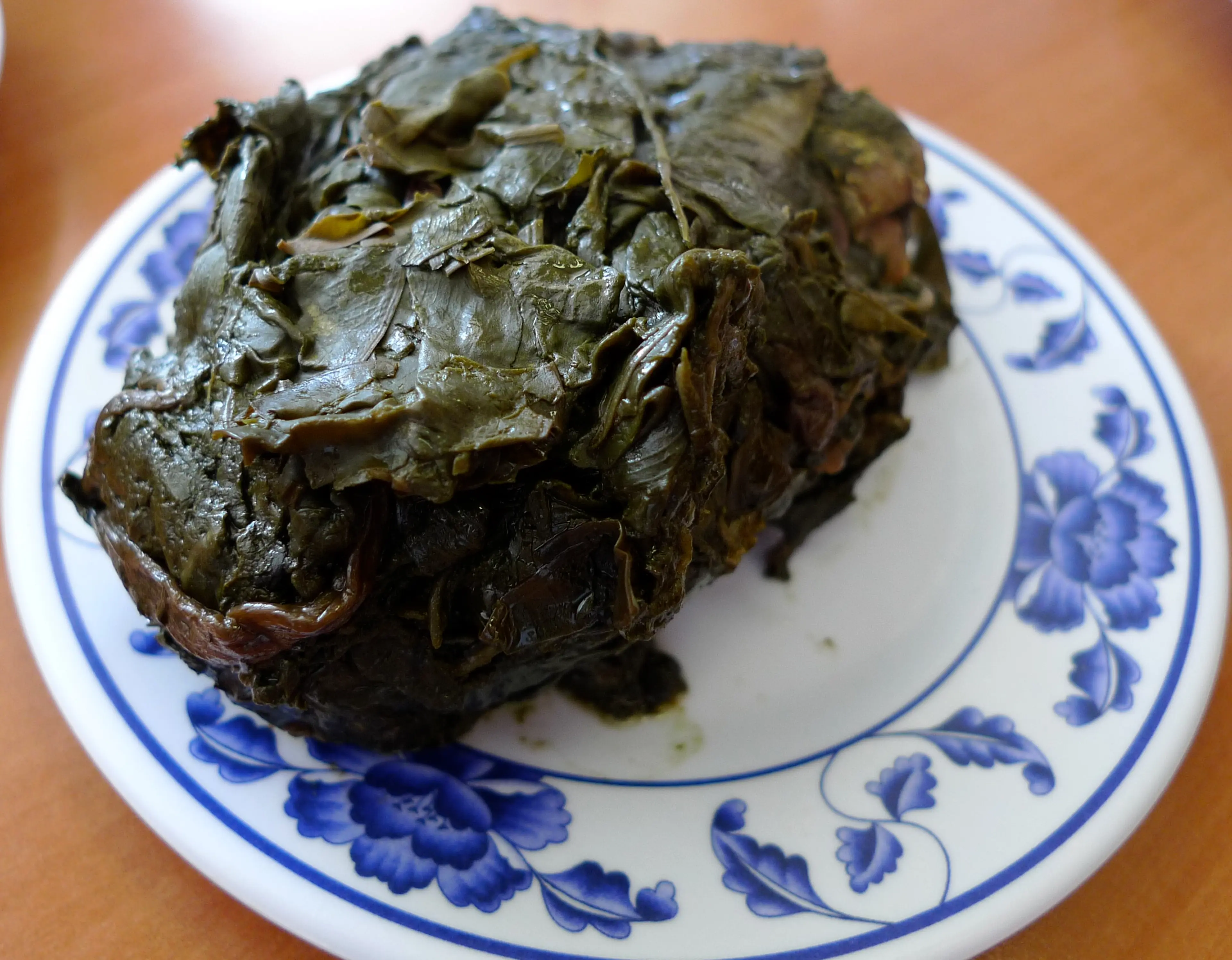
Lau Lau
A traditional Hawaiian dish, Lau Lau consists of pork, fish, or chicken wrapped in taro leaves and then steamed until tender. It's a flavorful, hearty dish that's a staple in Hawaiian cuisine.
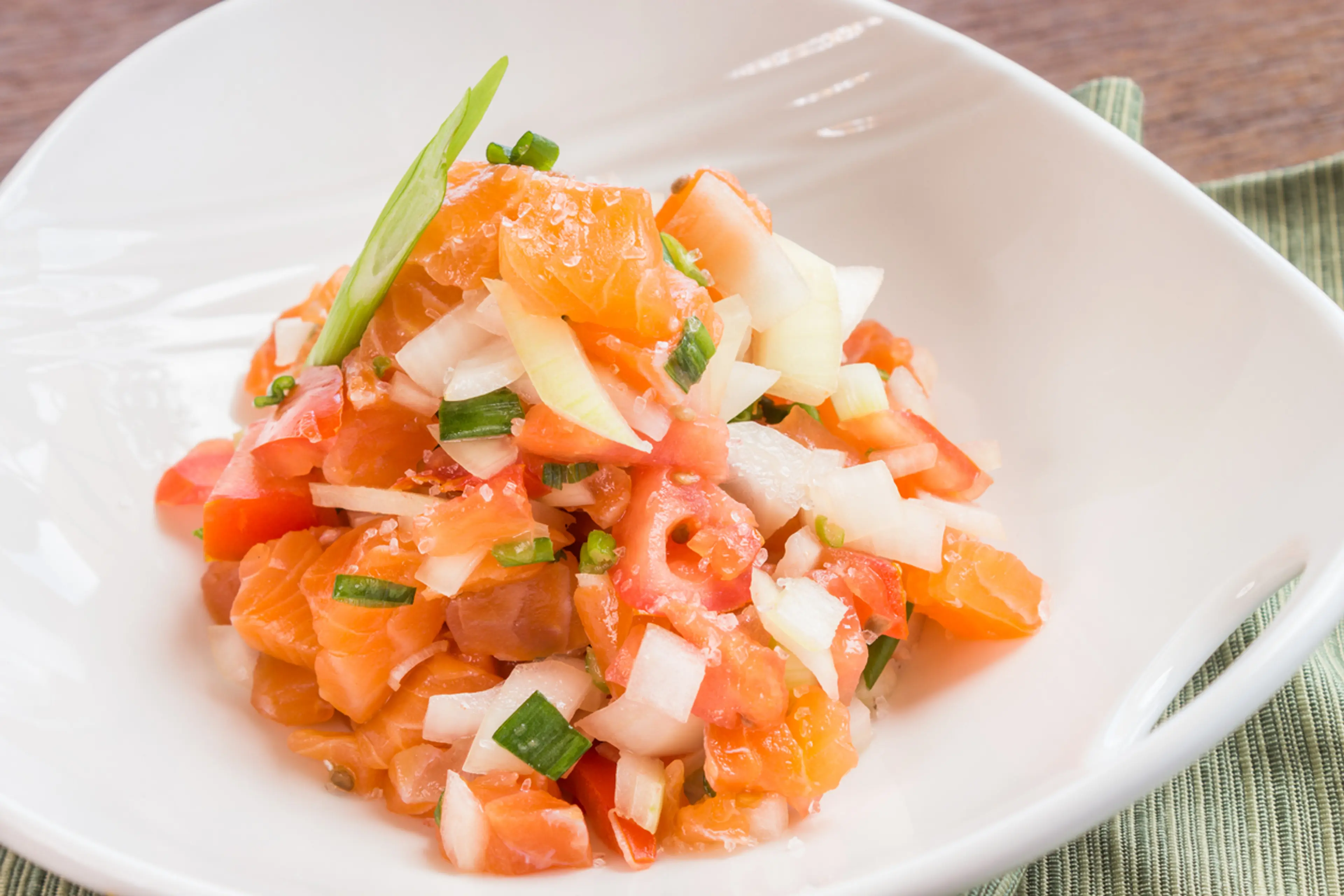
Lomi Lomi Salmon
A traditional Hawaiian side dish, Lomi Lomi Salmon is a refreshing salad made from salted salmon, tomatoes, onions, and chili peppers. It's often served at luaus and other Hawaiian gatherings.
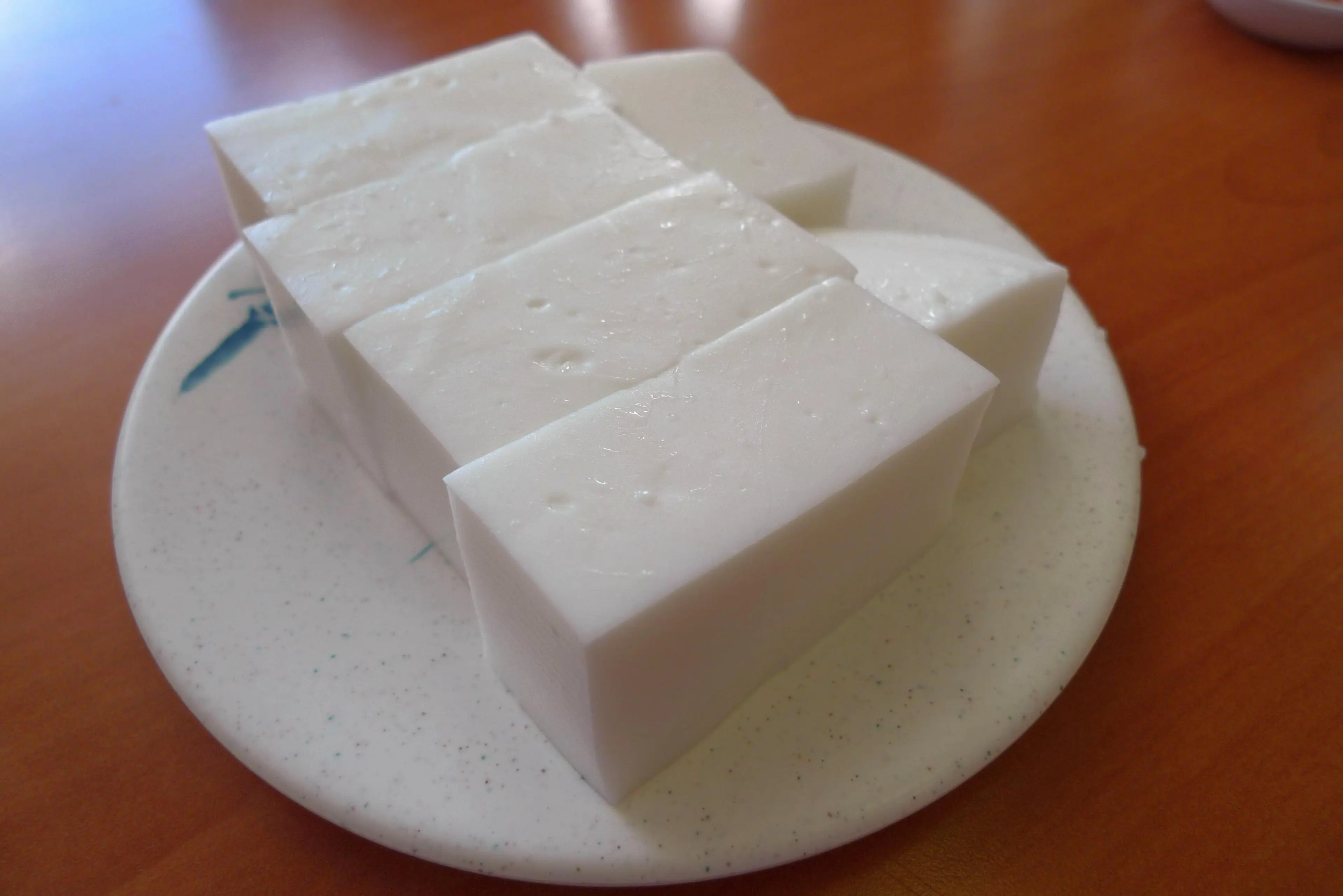
Haupia
A traditional Hawaiian dessert, Haupia is a coconut milk-based custard that's cut into squares and served chilled. It's a sweet, creamy treat that's a favorite among locals and tourists alike.
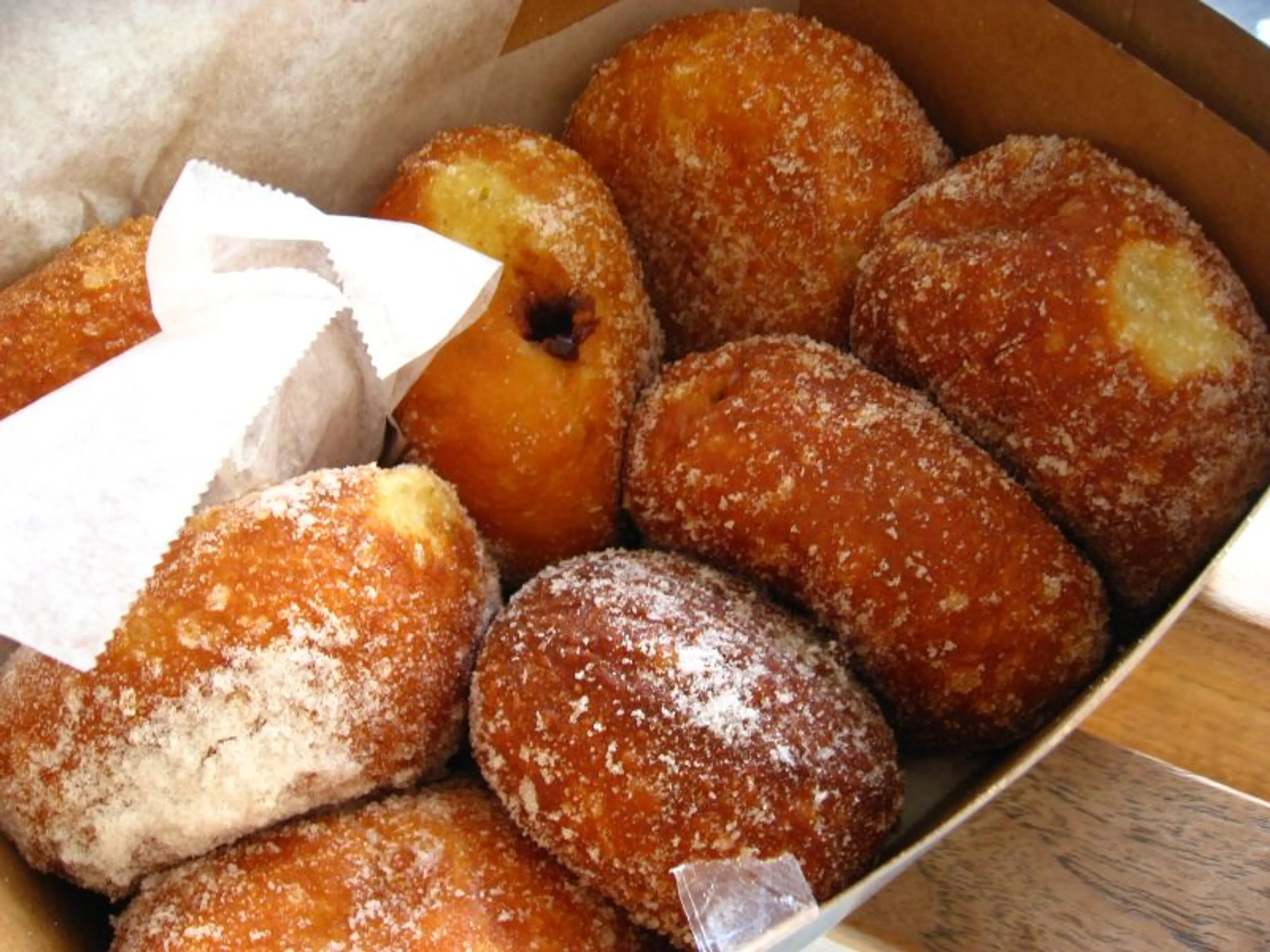
Malasadas
A popular dessert in Hawaii, Malasadas are Portuguese doughnuts without a hole. They're fried until golden brown and coated with sugar. They're a sweet treat that's a favorite among locals and tourists alike.

Poi
A traditional Hawaiian side dish, Poi is made from the fermented root of the taro plant. It has a unique, slightly sour taste and a sticky, pudding-like texture. It's a staple in Hawaiian cuisine.
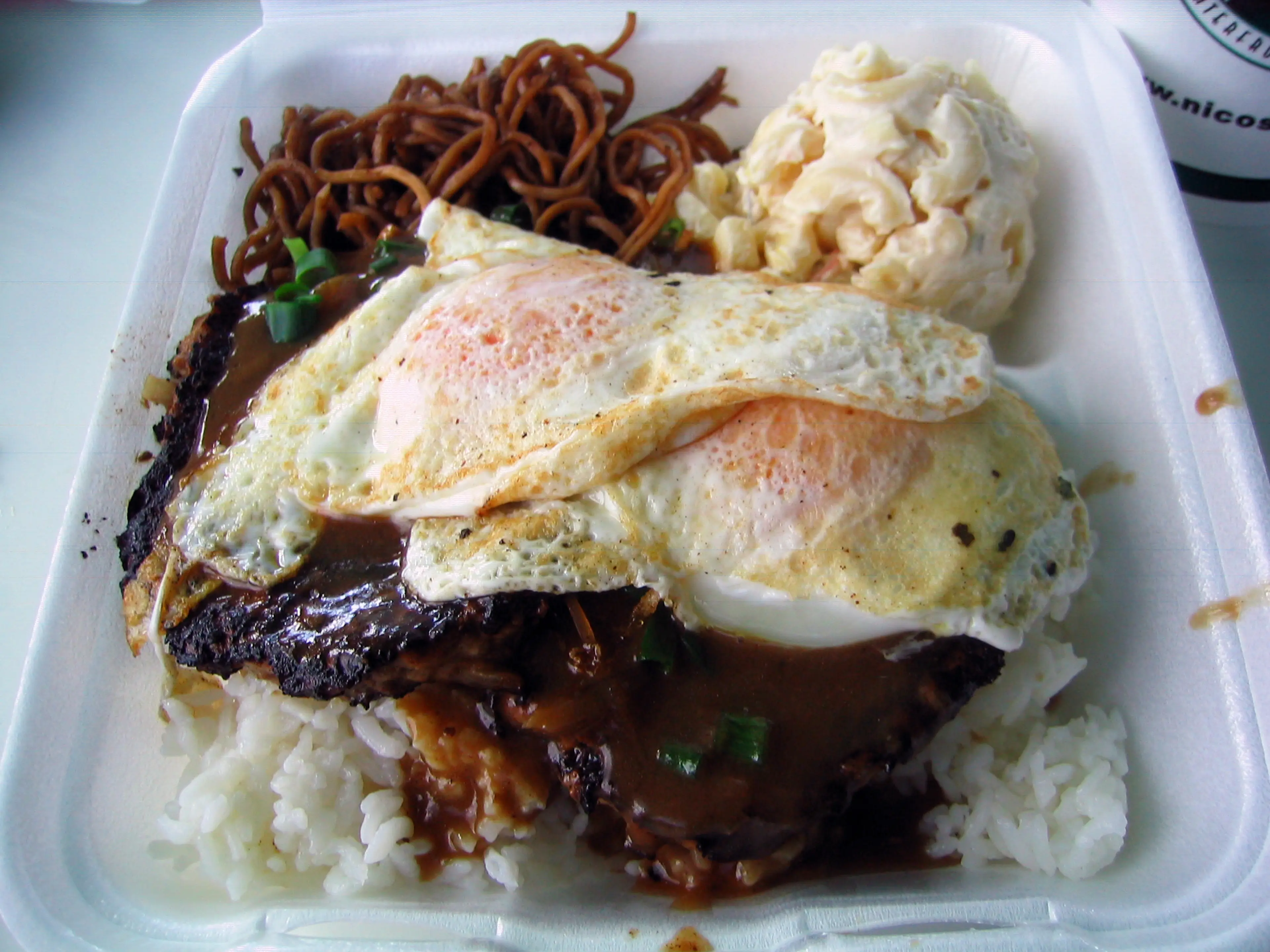
Loco Moco
A popular dish in Hawaii, Loco Moco consists of white rice topped with a hamburger patty, a fried egg, and brown gravy. It's a hearty, comfort food that's a favorite among locals.
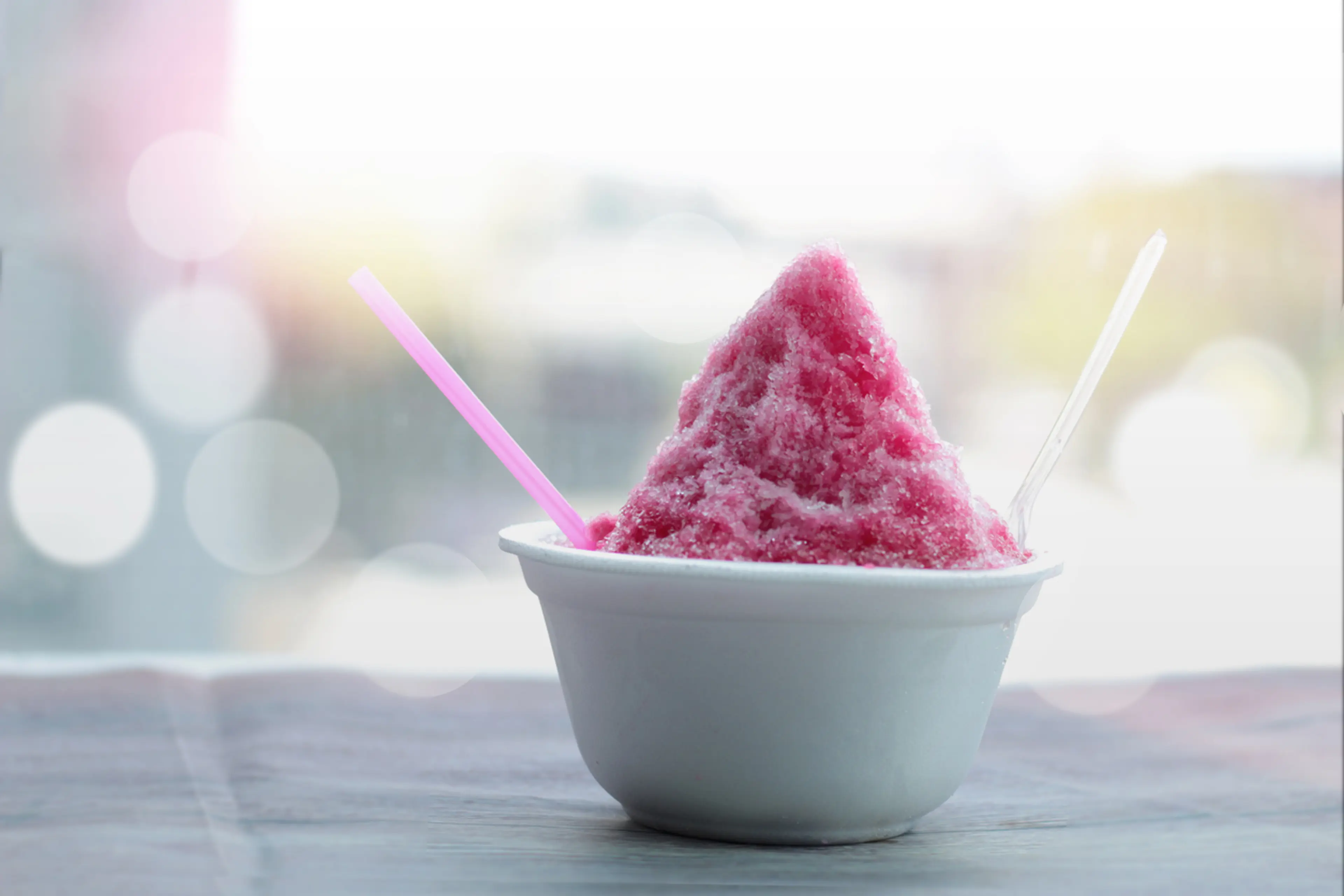
Shave Ice
A popular dessert in Hawaii, Shave Ice is a cone of finely shaved ice topped with sweet syrups. It's a refreshing treat that's perfect for cooling off on a hot Hawaiian day.
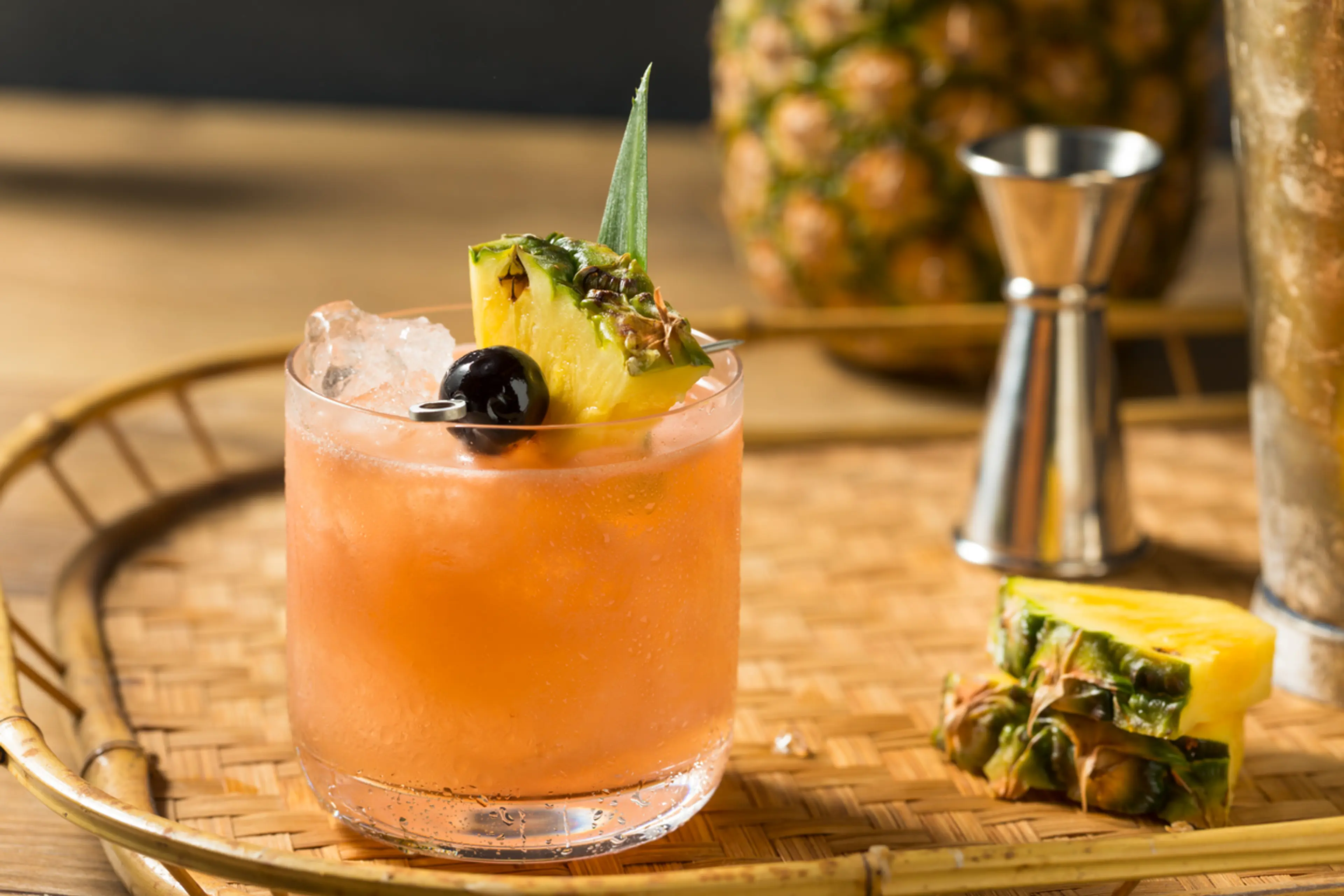
Mai Tai
A popular cocktail in Hawaii, the Mai Tai is made with rum, lime juice, and tropical fruit juices. It's a sweet, refreshing drink that's perfect for enjoying on the beach.
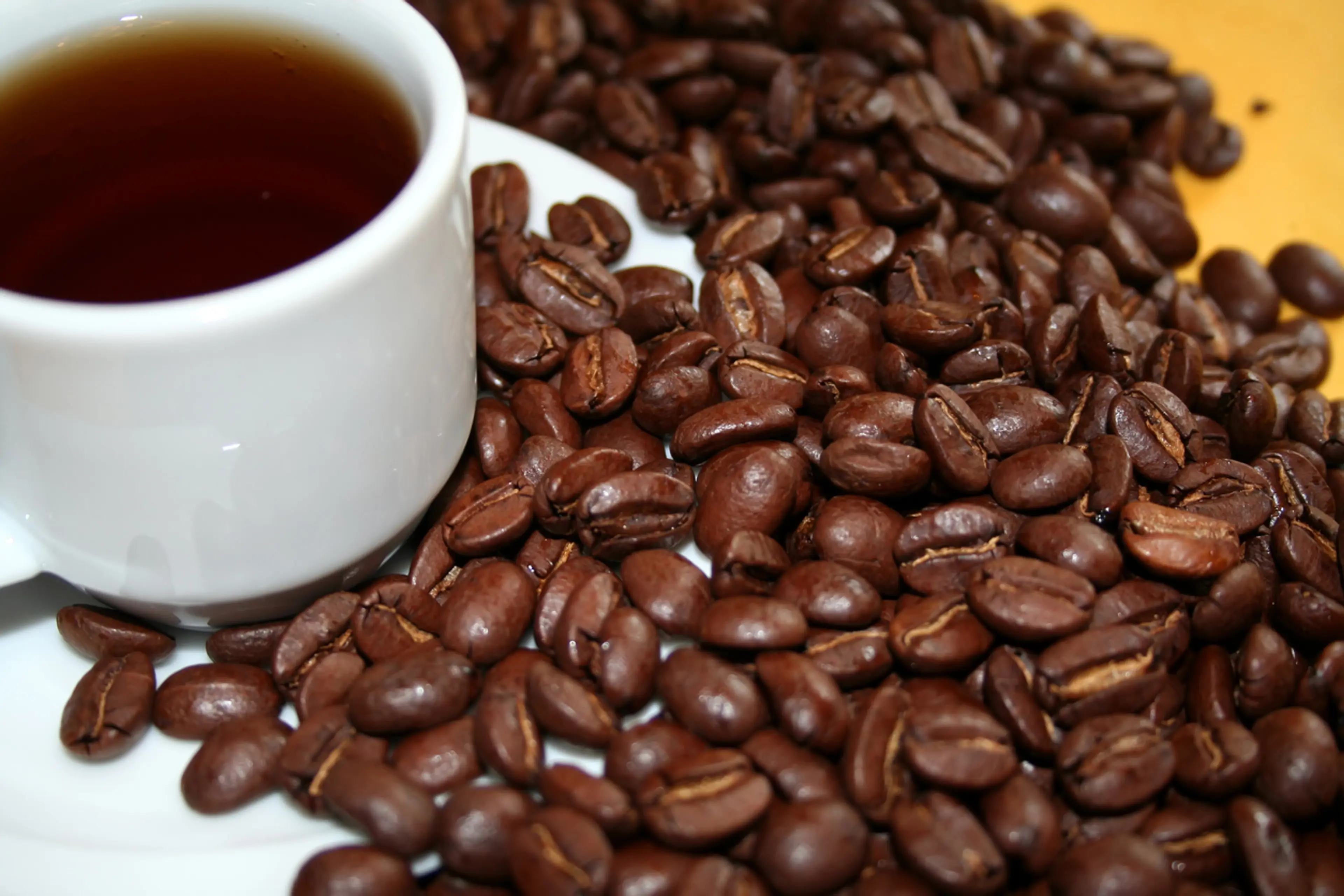
Kona Coffee
Grown on the slopes of Mauna Loa in the Kona district of Hawaii, Kona Coffee is known for its rich flavor and aroma. It's a must-try for coffee lovers visiting Hawaii.
Best time to visit
The best time to visit Hawaii as a tourist is typically during the shoulder seasons, which are April to June and September to November. During these periods, the weather is pleasant, and the tourist crowds are less dense. However, Hawaii enjoys a tropical climate year-round, so any time is a good time to visit. It really depends on what you want to do. For instance, if you're interested in whale watching, the best time would be from December to April.
How to get around
Rental Car
Renting a car is one of the most popular ways to get around Hawaii. It offers the most flexibility and convenience, especially for families or groups. All major rental companies are available at the airports.
Public Bus
Hawaii's public bus system, known as TheBus, operates on all major islands and can take you to most tourist destinations. However, it may not be the fastest or most convenient option if you're on a tight schedule.
Shuttle Services
Many hotels and resorts offer shuttle services to and from the airport, as well as to popular tourist destinations. This can be a convenient option if you're staying at a property that offers this service.
Ridesharing
Ridesharing services like Uber and Lyft operate in Hawaii, particularly in the more populated areas like Honolulu. This can be a convenient and often cheaper alternative to taxis.
Bicycle
In some areas, particularly in Honolulu, renting a bicycle can be a fun and eco-friendly way to get around. There are numerous bike rental shops and some cities also have bike-share programs.
Taxis
Taxis are available throughout Hawaii, especially in the larger cities and at the airports. They can be a convenient option for short trips or if you don't want to worry about parking.
Foot
Many of Hawaii's attractions are located in close proximity to each other, especially in areas like Waikiki. Walking can be a pleasant way to explore these areas at your own pace.
Tour Buses
Many companies offer tour bus services that take you to Hawaii's top attractions. This can be a convenient option if you prefer a guided experience and don't want to worry about transportation.
Moped/Scooter
Renting a moped or scooter can be a fun way to explore Hawaii's cities and towns. However, you should be comfortable with this mode of transportation and aware of local traffic laws.
Ferry
Ferries operate between some of the Hawaiian Islands, providing a scenic way to travel and the opportunity to visit multiple islands during your trip.
Important information
Currency$ USD
Time zoneUTC-5
Driving sideRight
Emergency phone911
Drinking waterYes
Power sockets
Voltage120 V
Things to know about Hawaii as a first time visitor
1
Hawaii is made up of eight main islands: Hawaii (the Big Island), Maui, Oahu, Kauai, Molokai, Lanai, Niihau, and Kahoolawe.
2
The official state language is English, but you'll also hear a lot of Hawaiian and Pidgin (a creole language that is a blend of English, Hawaiian, and other languages).
3
Hawaii operates on Hawaii Standard Time. It does not observe Daylight Saving Time, so it can be anywhere from 2 to 5 hours behind the mainland U.S., depending on the time of year and the time zone of your home state.
4
The climate is tropical, but temperatures and humidity tend to be less extreme than other tropical locales due to the constant trade winds. Average temperatures range from 78-88°F (25-31°C) in the summer and 73-78°F (22-25°C) in the winter.
5
Hawaii has a casual dress code. Pack lightweight, breathable clothing, a hat, sunglasses, and plenty of sunscreen. Don't forget a light jacket or sweater for the evenings or higher elevations.
6
Hawaii has strict agricultural laws to prevent the spread of pests and diseases. You are not allowed to bring fresh fruits, vegetables, plants, or flowers from the mainland without inspection.
7
Tipping is customary in Hawaii, similar to the rest of the U.S. A 15-20% tip is standard for restaurants, taxis, and services.
8
Hawaii has a high cost of living, so expect prices for food, goods, and services to be higher than on the mainland.
9
The ocean can be dangerous, so always heed posted warnings and never turn your back on the ocean. Rip currents, high surf, and dangerous marine life can pose risks.
10
Hawaii is a paradise for outdoor activities. However, it's important to respect nature and stay on marked trails, not to touch or disturb wildlife, and to pack out what you pack in.
11
Hawaii has a rich cultural history. Respect sacred sites, like heiaus (ancient Hawaiian temples), and don't remove rocks or sand from the islands.
12
The sun in Hawaii is stronger than most places, due to its proximity to the equator. Always wear sunscreen, even on cloudy days.
13
Hawaii has a slower pace of life, often referred to as 'Island Time'. Be patient and enjoy the relaxed pace.
14
Public transportation options vary by island. Oahu has extensive bus service, while the other islands are best explored by rental car.
15
Hawaii has a diverse food scene, influenced by Native Hawaiian, Asian, and American cuisines. Try local specialties like poke, loco moco, and shave ice.
16
Hawaii is home to many endangered species. It's illegal and harmful to the environment to feed, touch, or harass wildlife.
17
Hawaii has a rainy season from November to March, but showers are usually brief and followed by sunshine.
18
Hawaii is a popular destination, so it's best to book accommodations and activities well in advance, especially during peak travel seasons.
19
Hawaii has a sales tax of 4.166% to 4.712%, depending on the county. This is often added at the register, so the price you see on a tag may not be the final price.
20
Hawaii is in the middle of the Pacific Ocean, so flights can be long. Make sure to stay hydrated, move around during the flight, and adjust to the local time as quickly as possible to minimize jet lag.
Packing List
Clothing
Lightweight clothing
Swimwear
Beach cover-up
Underwear
Socks
Sleepwear
Flip flops
Comfortable walking shoes
Hat for sun protection
Sunglasses
Light jacket or sweater for cooler evenings
Toiletries
Travel-sized shampoo and conditioner
Body wash or soap
Toothbrush and toothpaste
Deodorant
Razor and shaving cream
Sunscreen
Aloe vera or after sun lotion
Insect repellent
Prescription medications
First aid kit
Makeup and makeup remover
Hairbrush or comb
Travel documents and essentials
Passport or ID
Airline tickets or e-ticket confirmation
Hotel reservation confirmation
Car rental reservation confirmation
Travel insurance documents
Credit and debit cards
Cash
Guidebook or map
Electronics and gadgets
Smartphone
Charger for smartphone
Headphones
Camera
Charger for camera
Power adapter or converter
Portable power bank
Miscellaneous items
Snacks for the journey
Reusable water bottle
Books or magazines for the flight
Travel pillow and blanket
Earplugs and eye mask
Beach bag
Beach towel
Snorkel gear
Travel laundry detergent packets
Ziplock bags for wet swimwear
Weather Conditions
Hawaii is a tropical paradise known for its year-round mild climate. However, it's important to remember that the weather can vary depending on the time of year and location within the islands. The average daytime temperature in Hawaii is generally around 85°F (29°C), while at night it can drop to around 70°F (21°C). However, these temperatures can fluctuate depending on the season and the specific island you're visiting. Hawaii experiences two main seasons: the dry season (May to October) and the wet season (November to April). The dry season is typically warmer and less humid, while the wet season is cooler and more humid, with more frequent rainfall. However, even during the wet season, rain showers are often brief and followed by sunshine. If you're planning to visit the islands during the wet season, it's a good idea to pack a lightweight rain jacket or umbrella. Even during the dry season, it's wise to have a hat and sunscreen to protect against the strong tropical sun. One unique aspect of Hawaii's weather is the microclimates. The islands' diverse landscapes, from beaches to mountains, can create localized weather conditions. For instance, the windward (eastern) sides of the islands often receive more rain than the leeward (western) sides. So, if you're planning to explore different parts of the islands, be prepared for varying weather conditions. Lastly, if you're planning to visit the higher elevations like Mauna Kea or Haleakala, remember that temperatures can be significantly cooler, and these areas can even experience snowfall in the winter months. So, pack accordingly with warmer clothing. In conclusion, Hawaii's weather is generally pleasant, but it's always a good idea to check the local forecast and pack for a variety of conditions. Enjoy your trip to this beautiful tropical paradise!
| Month | Hi / Lo (°C) | Weather Overview |
|---|---|---|
January | 27° / 18° | January is the coldest month in Hawaii, but it's still warm with an average high of 27°C. Expect occasional rain showers. |
February | 27° / 18° | February is similar to January, with a slight increase in rainfall. The temperature remains warm, perfect for beach activities. |
March | 28° / 19° | March sees a slight increase in temperature. It's a great time to visit for those who enjoy water sports. |
April | 28° / 20° | April is a beautiful month with a perfect balance of warm temperatures and less rainfall. Ideal for outdoor activities. |
May | 29° / 21° | May marks the beginning of the dry season. The weather is warm and sunny, perfect for sunbathing. |
June | 30° / 22° | June is one of the hottest months, with less rainfall. It's a great time for snorkeling and diving. |
July | 31° / 23° | July is the peak of summer with high temperatures. It's the perfect time for surfing and other water activities. |
August | 31° / 23° | August continues the summer heat. It's a great time to explore Hawaii's stunning landscapes. |
September | 31° / 23° | September is slightly cooler but still warm. It's an excellent time for hiking and exploring the natural beauty of Hawaii. |
October | 30° / 22° | October sees a slight drop in temperature. It's a great time to visit for those who prefer less crowded tourist spots. |
November | 29° / 21° | November marks the beginning of the rainy season. However, the weather remains warm, making it a good time for indoor activities. |
December | 27° / 19° | December is a festive month with a bit cooler temperatures. It's a great time to enjoy Hawaii's Christmas celebrations. |
Did you know?
Places near by Hawaii
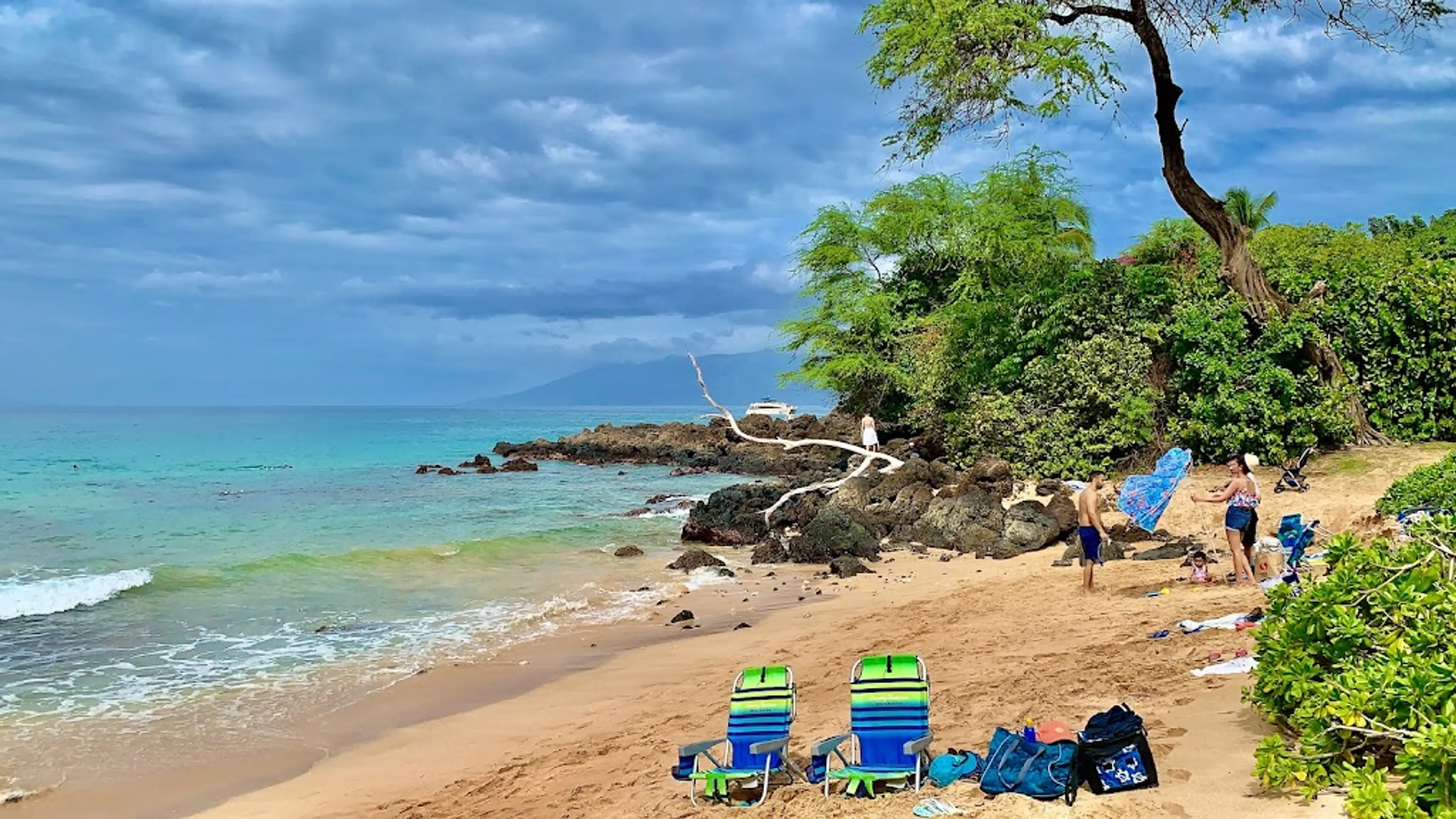
Maui
Known as the 'Valley Isle', Maui is famous for its beautiful beaches, the sacred Iao Valley, views of migrating humpback whales (during winter months), farm-to-table cuisine and the magnificent sunrise and sunset from Haleakala.
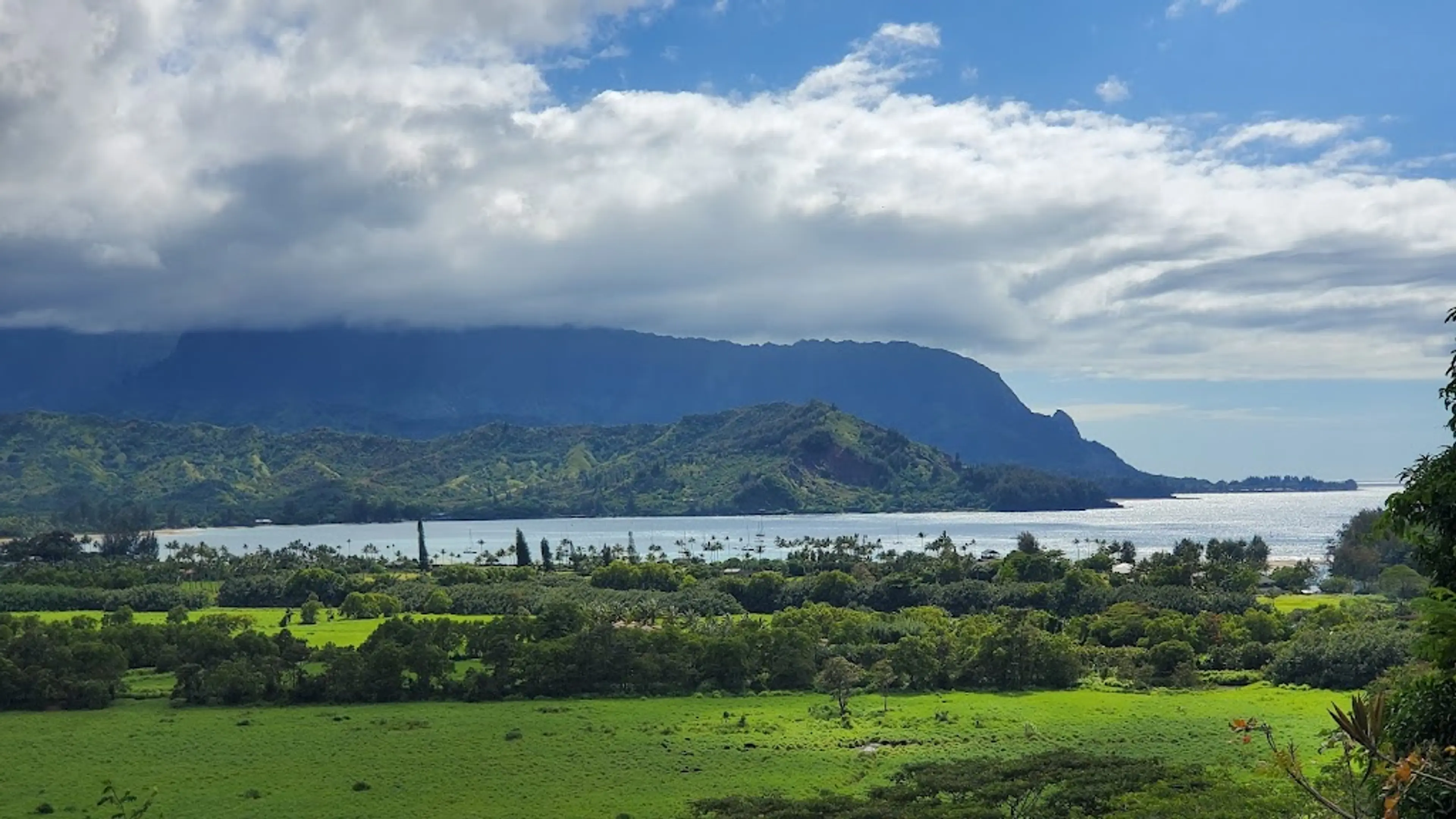
Kauai
Known as the 'Garden Isle', Kauai is home to a vast array of diverse microclimates, from arid deserts to lush rainforests, from sunny beaches to cool highlands.
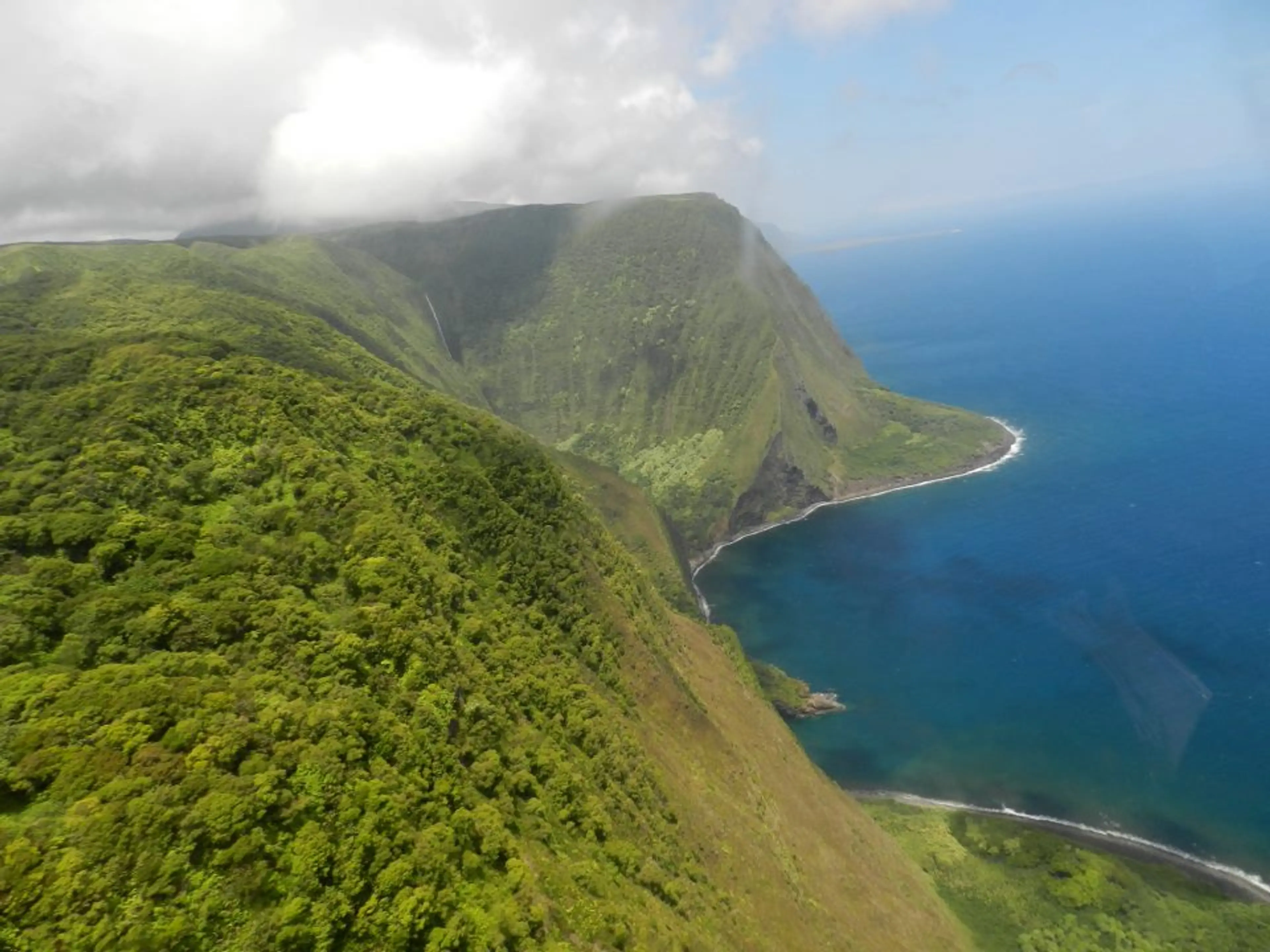
Molokai
Known as the 'Friendly Isle', Molokai is a Hawaiian island in the central Pacific, east of Oahu and west of Maui. Its coastline is largely inaccessible high cliffs, where the Kalaupapa National Historical Park once was a leper colony.
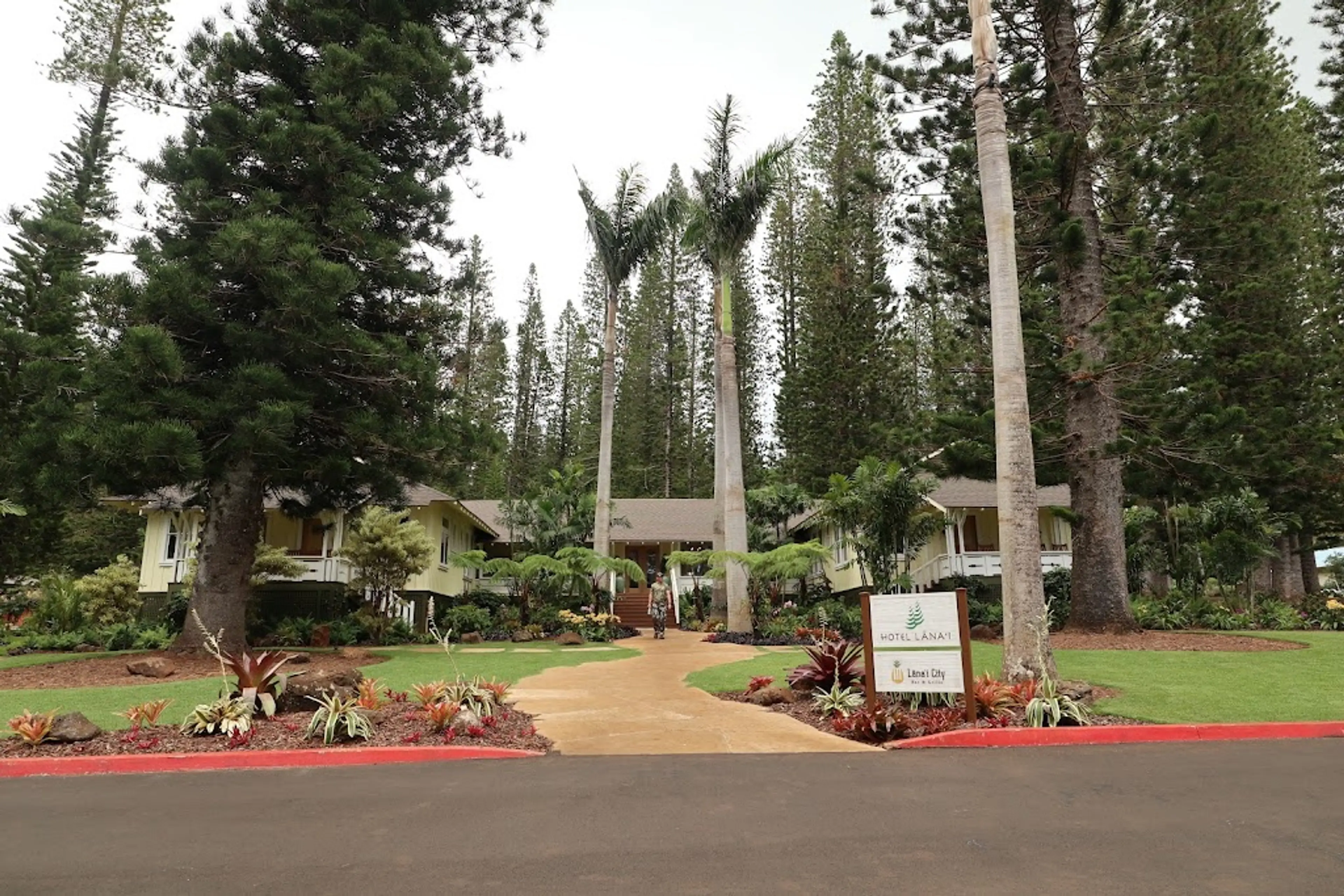
Lanai
Known as the 'Pineapple Isle', Lanai is the smallest inhabited island in Hawaii and is home to luxurious resorts and beautiful landscapes.
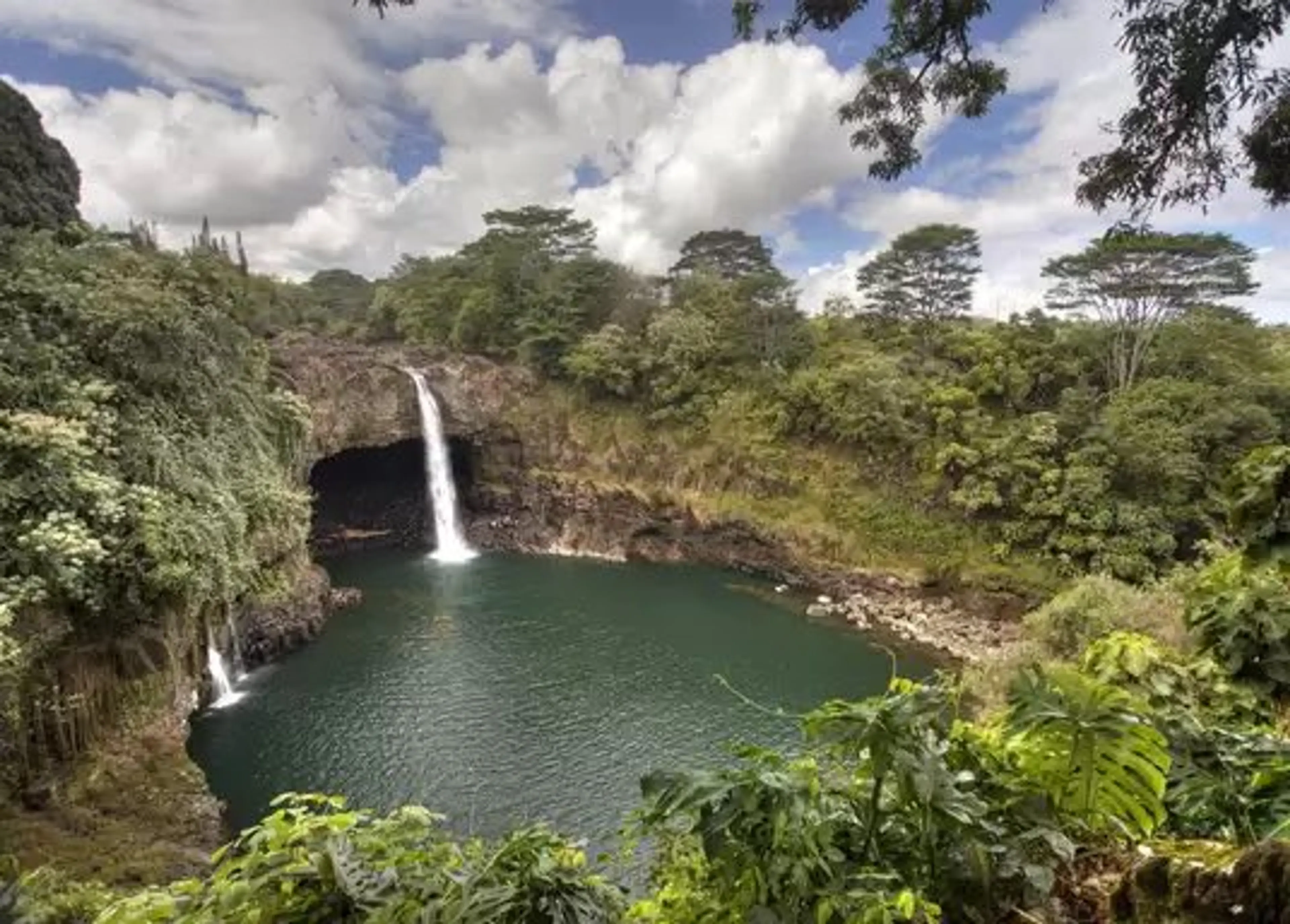
Big Island
The Island of Hawaii, also known as the Big Island, is the largest of Hawaii's main islands with a diverse range of climate and the active Kilauea volcano.
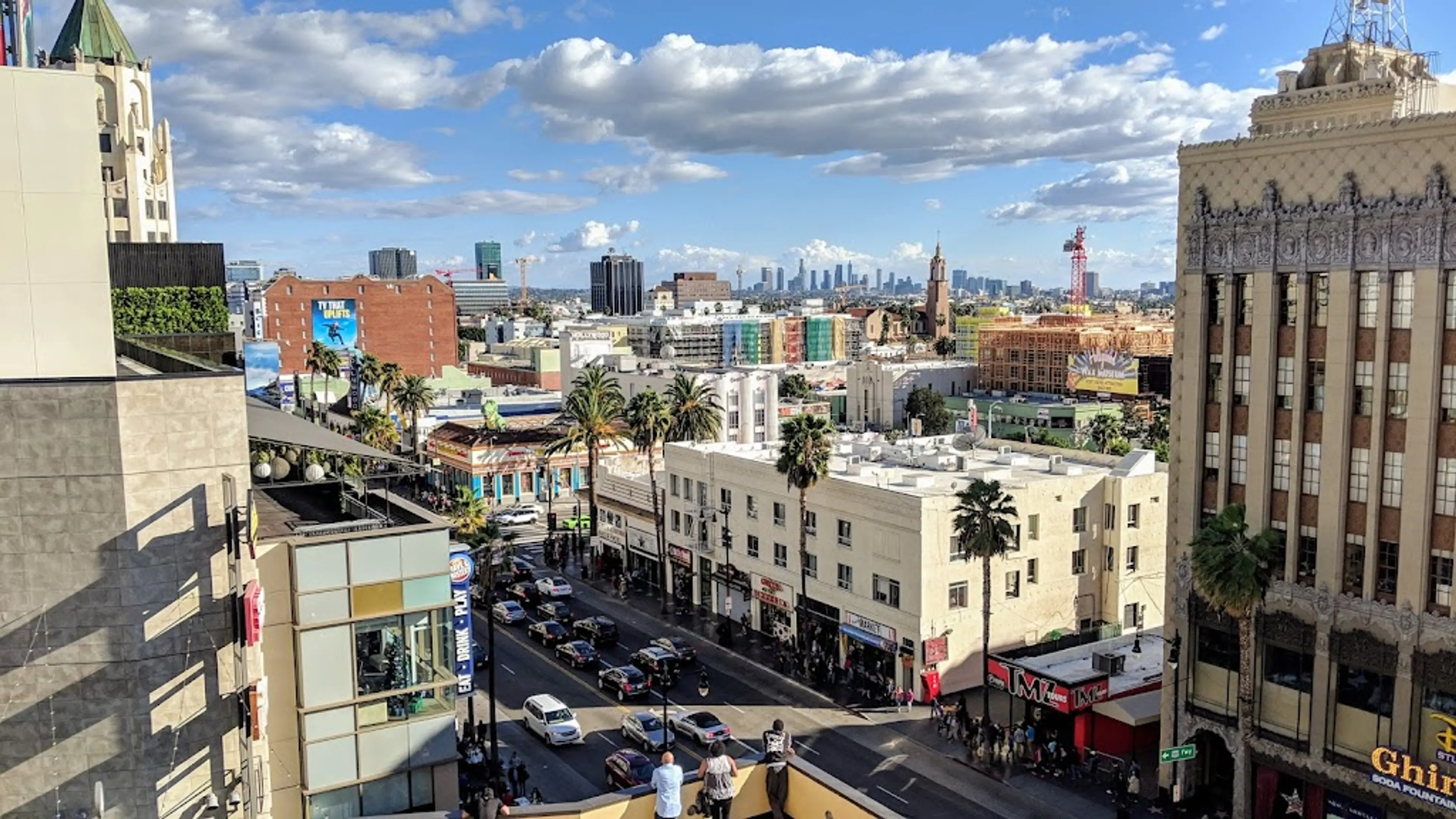
Los Angeles
The city of Los Angeles is known for its Mediterranean climate, ethnic diversity, and the entertainment industry.

San Francisco
San Francisco, in northern California, is a hilly city on the tip of a peninsula surrounded by the Pacific Ocean and San Francisco Bay. It's known for its year-round fog, iconic Golden Gate Bridge, cable cars and colorful Victorian houses.
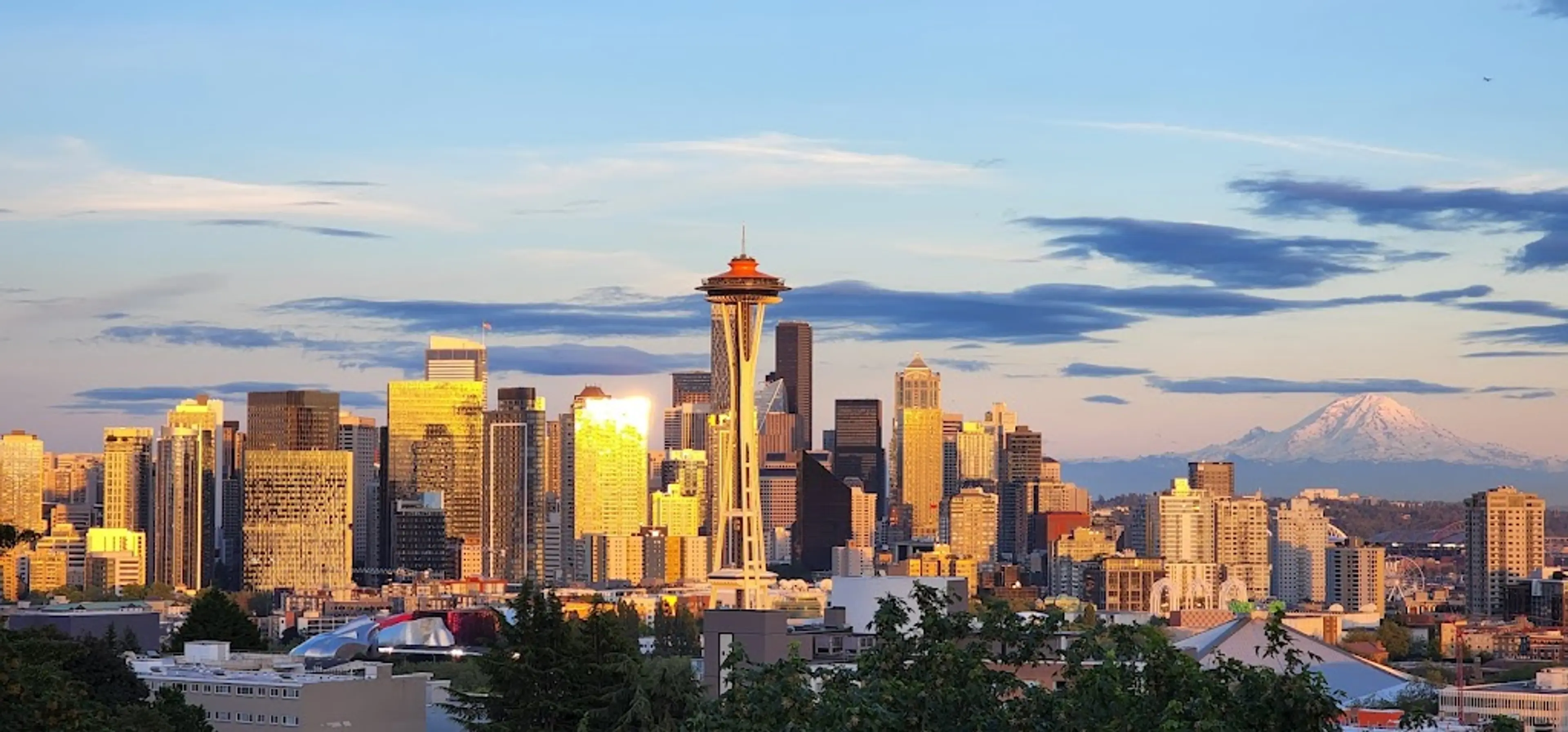
Seattle
Seattle, a city on Puget Sound in the Pacific Northwest, is surrounded by water, mountains and evergreen forests, and contains thousands of acres of parkland.
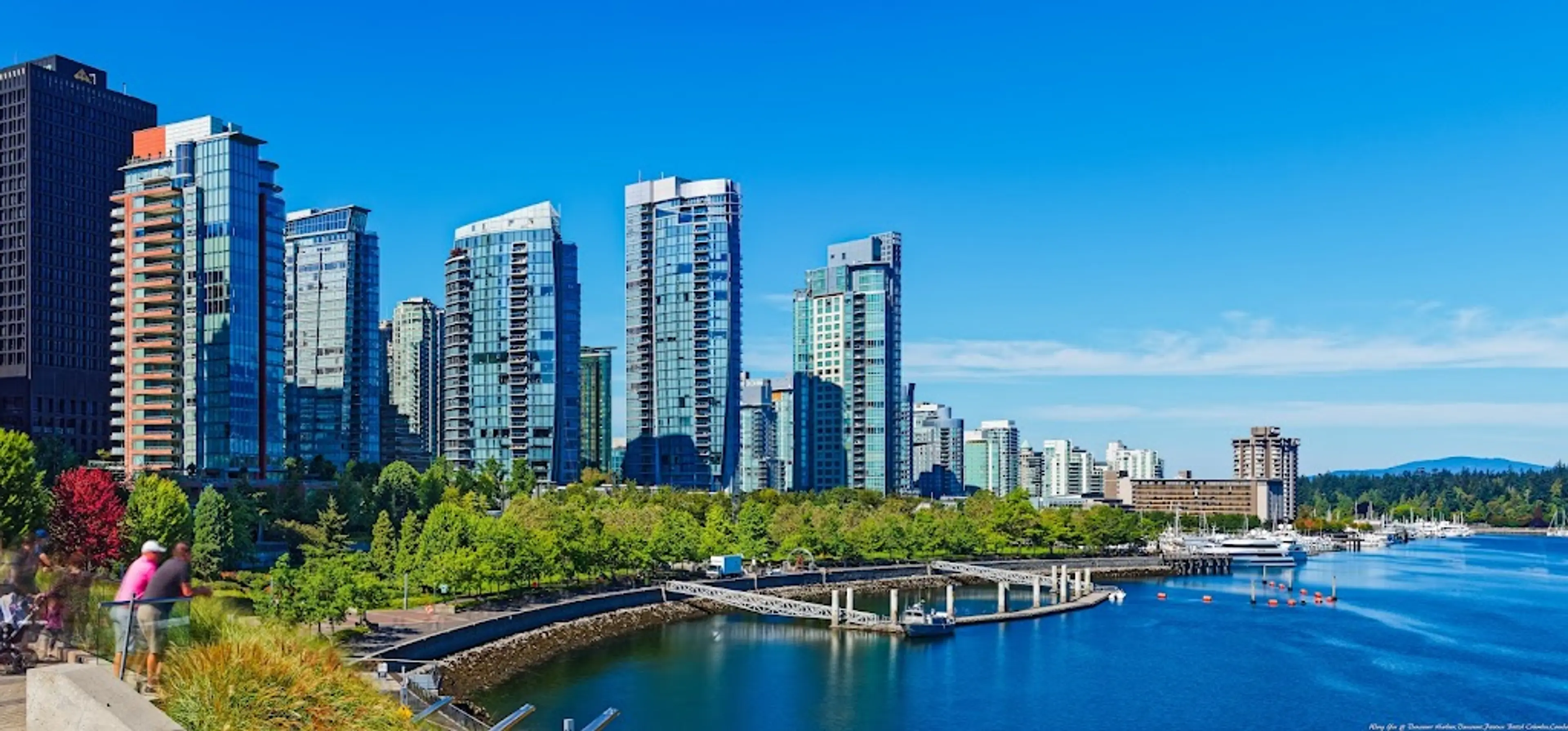
Vancouver
Vancouver, a bustling west coast seaport in British Columbia, is among Canada’s densest, most ethnically diverse cities. It’s surrounded by mountains and invites outdoor pursuits of all kinds.
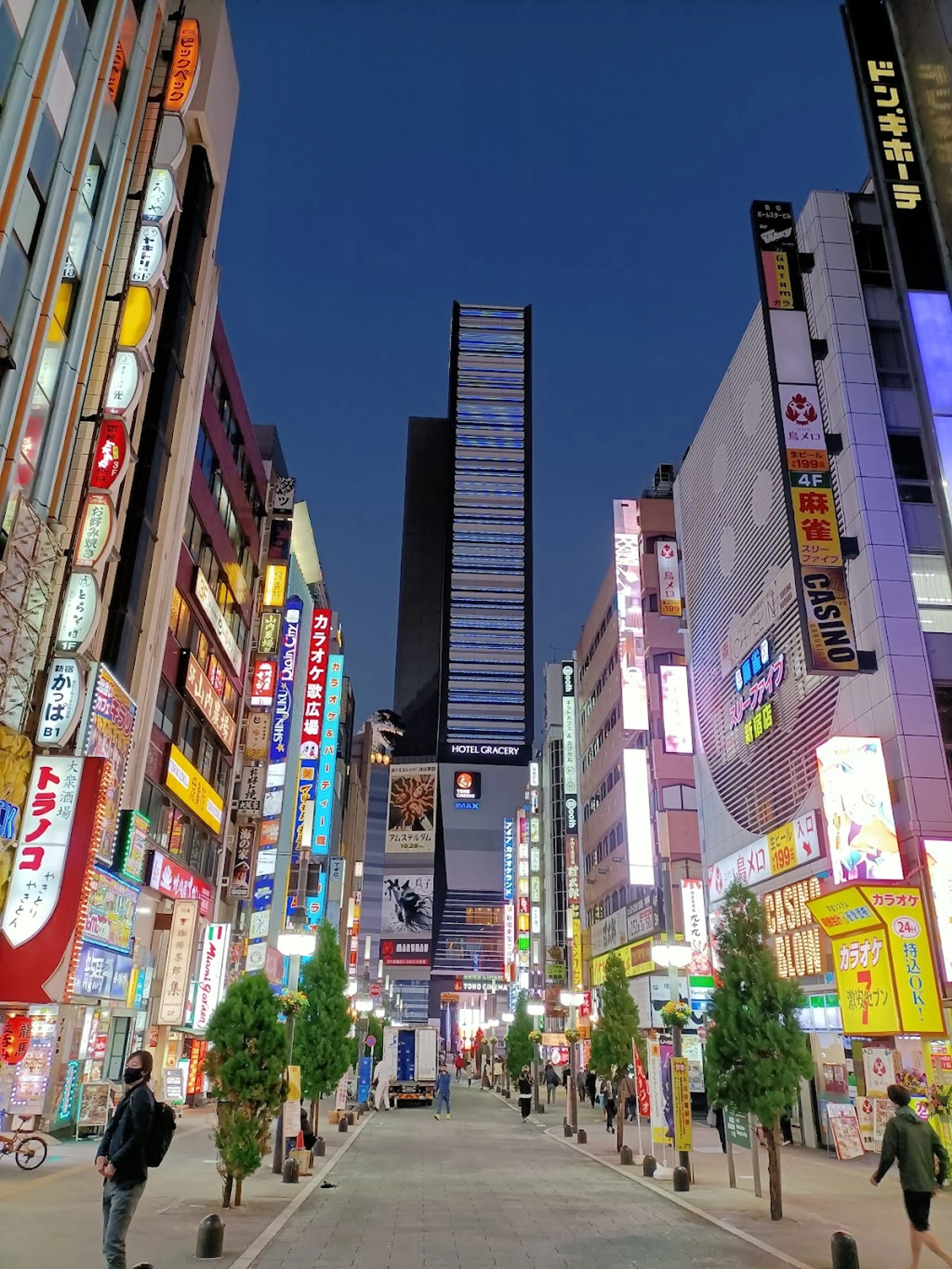
Tokyo
Tokyo, Japan’s busy capital, mixes the ultramodern and the traditional, from neon-lit skyscrapers to historic temples.
